The 5th Annual Conference [Report]
The 5th Annual Meeting, held on Sunday, September 19, 2021, was again held onsite and online with a reduced venue this year from the perspective of preventing and spreading new coronavirus infections.
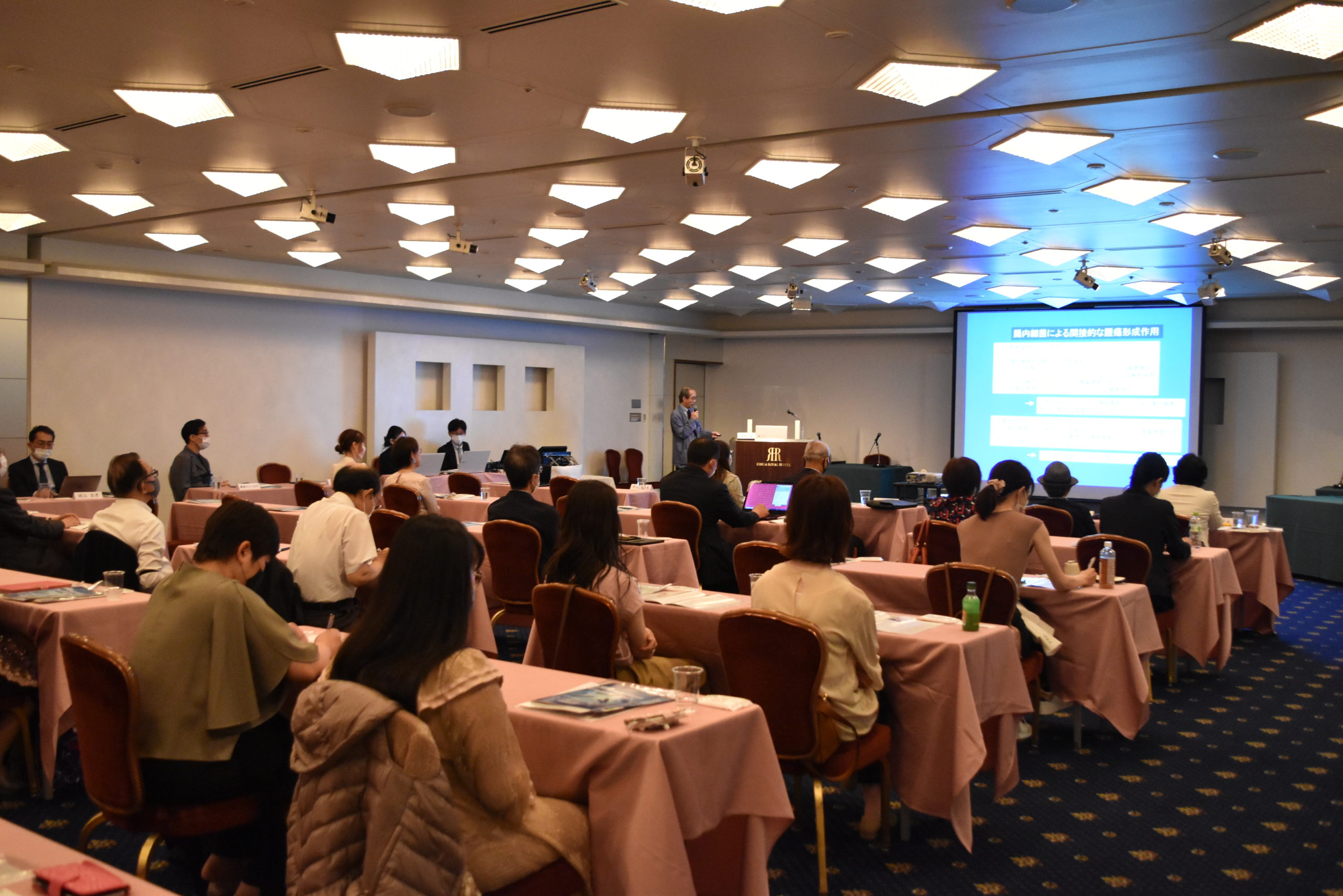
Medical professionals, general business people, research institutions, and patients participated in this very meaningful day to make everyone aware of the possibilities of intestinal flora transplantation. We would like to take this opportunity to thank everyone who attended.
We would also like to thank the participants for their cooperation in preventing the spread of infection at the venue.
opening
opening address
Dr. Zen Tanaka, President and Representative Director of the Society, gave the opening remarks.
He thanked everyone for their support and cooperation in holding the event despite the recent difficulties, and expressed his gratitude for the daily clinical applications of the program, looking back on the five years since its establishment.
In the morning, three professors gave presentations.
The morning session began with an introduction of Dr. Zen Tanaka by the chairperson of the morning session, Dr. Kensho Man (President, Medical Corporation Iryushinkai Yorozu Clinic ).
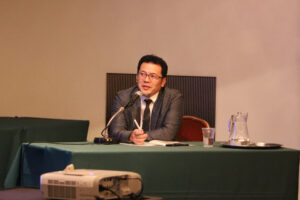
►Dr. Zen Tanaka, President, Tanaka Clinic ►Medical Corporation Jinzenkai Tanaka Clinic Dr. Zen Tanaka
The first speaker was Dr. Zen Tanaka, President of Tanaka Clinic, Jinzenkai Medical Corporation.
HE ALSO DISCUSSED THE POSSIBILITY THAT FMT CAN INHIBIT THE DECLINE OF RENAL FUNCTION IN PATIENTS WITH CONSERVATIVE RENAL FAILURE BEFORE THE INTRODUCTION OF DIALYSIS, FOR WHOM NO ACTIVE TREATMENT IS AVAILABLE, FROM THE PERSPECTIVE OF THE INTESTINAL-KIDNEY NEPHROPATHY RELATIONSHIP. IN ADDITION, FROM THE VIEWPOINT OF THE INTESTINAL-RENAL AXIS, FMT MAY BE ABLE TO REDUCE THE DECLINE IN RENAL FUNCTION IN PATIENTS WITH CONSERVATIVE RENAL FAILURE PRIOR TO THE INTRODUCTION OF DIALYSIS WITHOUT ACTIVE TREATMENT.
Jinzenkai Tanaka Clinic President
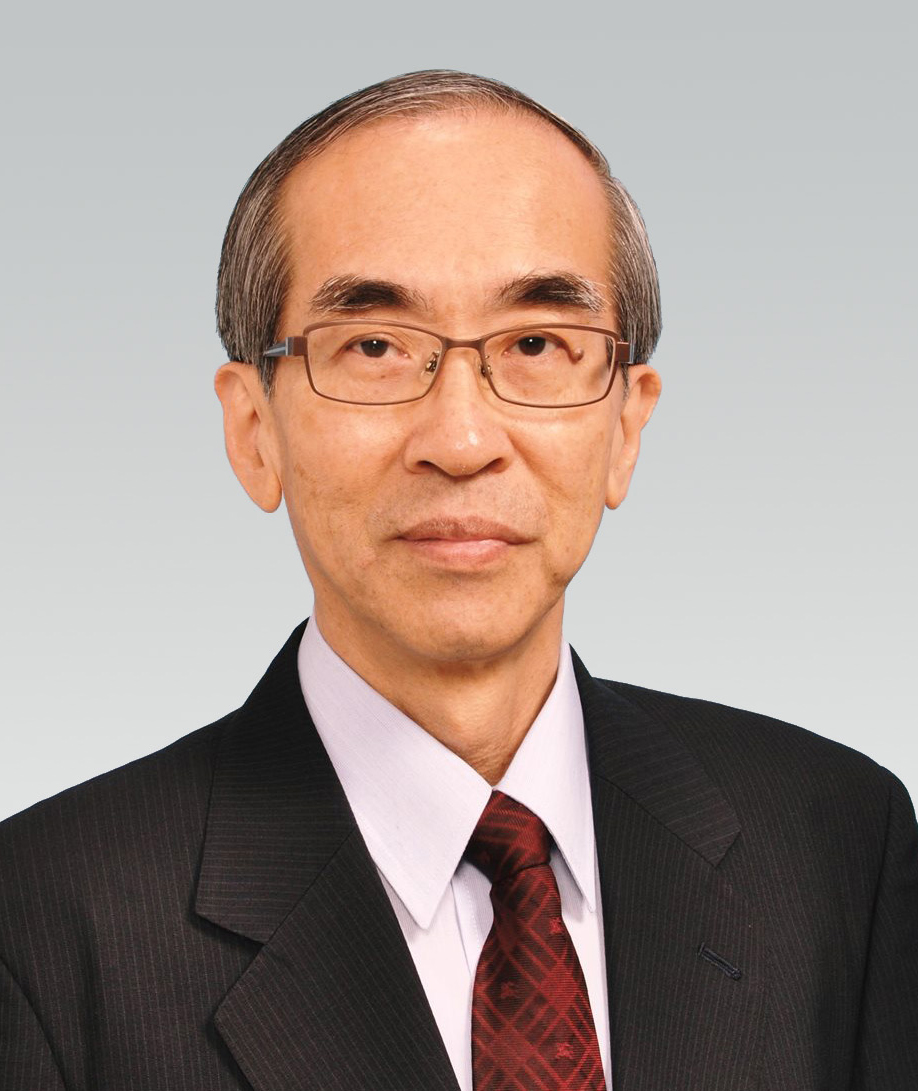 OUR RESEARCH GROUP HAS BEEN SUCCESSFUL IN CLINICAL STUDIES OF INTESTINAL FLORA TRANSPLANTATION (FMT) NOT ONLY IN GASTROINTESTINAL DISEASES SUCH AS ULCERATIVE COLITIS AND IRRITABLE BOWEL SYNDROME, BUT ALSO IN AUTISM SPECTRUM DISORDER IN CHILDREN AND ALLERGIC DISEASES SUCH AS ATOPIC DERMATITIS. IN THE FUTURE, WE WOULD LIKE TO CONDUCT CLINICAL STUDIES ON CANCER AND RENAL DISEASES. BASED ON THE IMPORTANT RELATIONSHIP BETWEEN INTESTINAL FLORA AND IMMUNITY, FMT MAY WORK TO SUPPRESS THE ONSET AND PROGRESSION OF CANCER. IN ADDITION, FROM THE VIEWPOINT OF THE INTESTINAL-KIDNEY RELATIONSHIP, FMT MAY INHIBIT THE DECLINE OF RENAL FUNCTION IN PATIENTS WITH CONSERVATIVE RENAL FAILURE PRIOR TO THE INTRODUCTION OF DIALYSIS, FOR WHOM NO ACTIVE TREATMENT IS AVAILABLE. I WOULD LIKE TO RAISE THESE POINTS.
OUR RESEARCH GROUP HAS BEEN SUCCESSFUL IN CLINICAL STUDIES OF INTESTINAL FLORA TRANSPLANTATION (FMT) NOT ONLY IN GASTROINTESTINAL DISEASES SUCH AS ULCERATIVE COLITIS AND IRRITABLE BOWEL SYNDROME, BUT ALSO IN AUTISM SPECTRUM DISORDER IN CHILDREN AND ALLERGIC DISEASES SUCH AS ATOPIC DERMATITIS. IN THE FUTURE, WE WOULD LIKE TO CONDUCT CLINICAL STUDIES ON CANCER AND RENAL DISEASES. BASED ON THE IMPORTANT RELATIONSHIP BETWEEN INTESTINAL FLORA AND IMMUNITY, FMT MAY WORK TO SUPPRESS THE ONSET AND PROGRESSION OF CANCER. IN ADDITION, FROM THE VIEWPOINT OF THE INTESTINAL-KIDNEY RELATIONSHIP, FMT MAY INHIBIT THE DECLINE OF RENAL FUNCTION IN PATIENTS WITH CONSERVATIVE RENAL FAILURE PRIOR TO THE INTRODUCTION OF DIALYSIS, FOR WHOM NO ACTIVE TREATMENT IS AVAILABLE. I WOULD LIKE TO RAISE THESE POINTS.
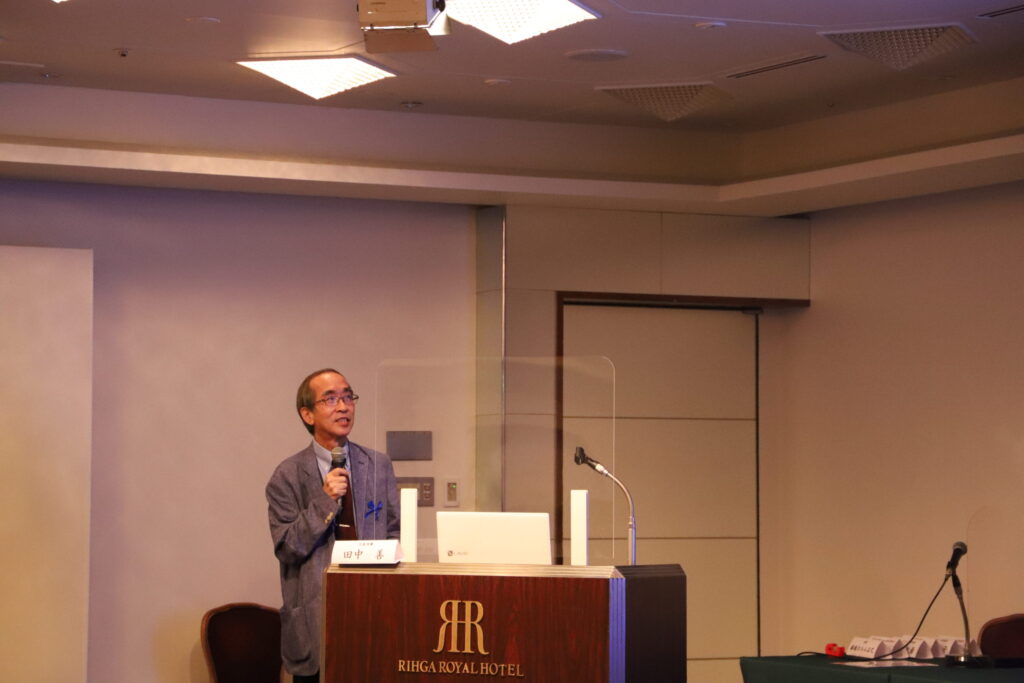
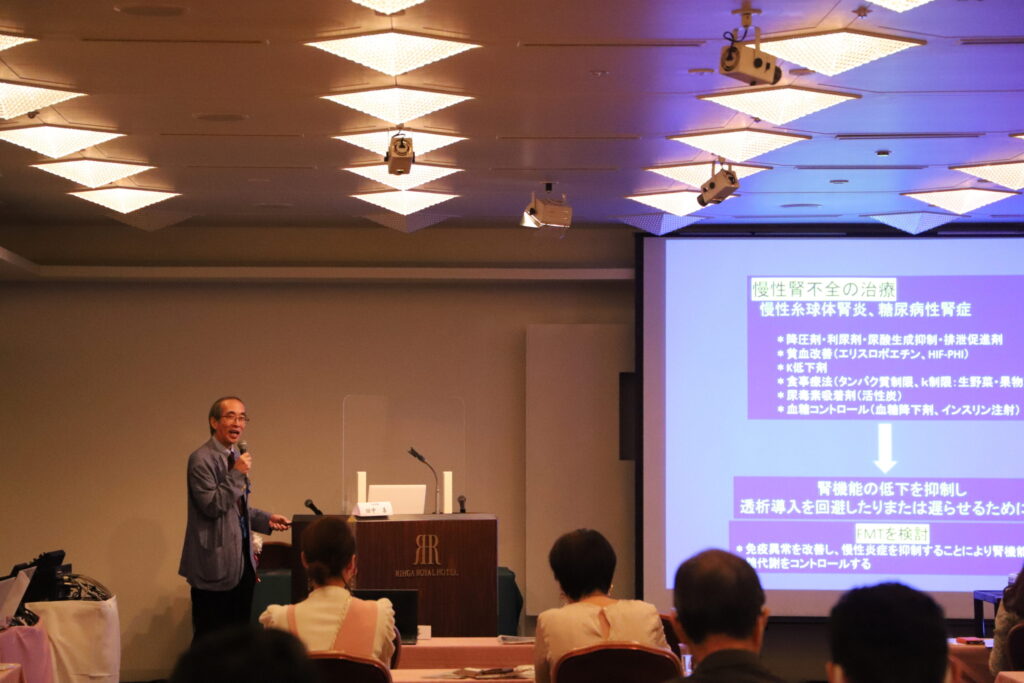
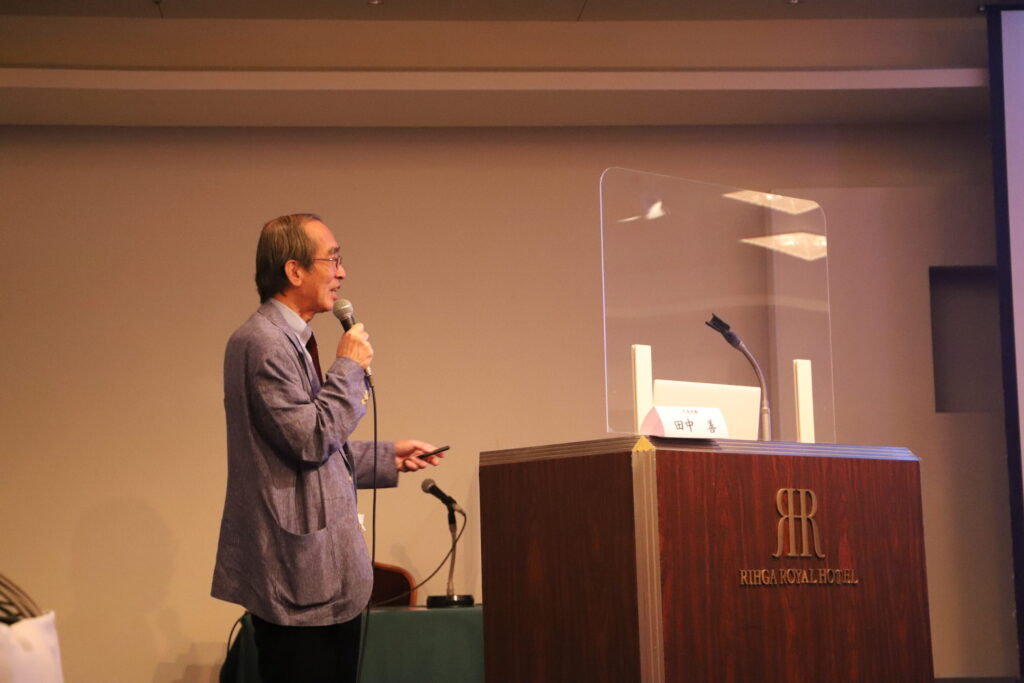
Case reports
►Director, Natural Art Clinic Dr. Yasuhito Mikawa
Natural Art Clinic Director
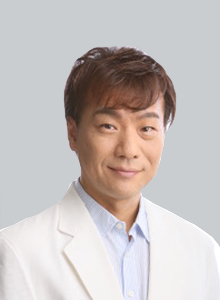 Fecal microbiota transplantation (FMT) has been attracting attention in recent years as a method to improve dysbiosis of the intestinal microbiota (intestinal flora). The NanoGAS®-FMT (NanoGAS®-FMT), which uses nanobubble water containing dissolved minute molecular hydrogen, is considered to be more effective than conventional FMT due to the various properties of nanobubbles. In this study, we experienced a case of ulcerative colitis that was found to be in remission by the attending physician on endoscopy 3 months after starting NanoGAS®-FMT. Prior to the patient’s visit to our clinic, the inflammation tended to decrease after the start of medication, but the symptoms were not stable enough and fluctuated up and down, with occasional episodes of abdominal pain, diarrhea, and bloody stools. Her symptoms had been aggravated by diet and stress, and she was able to control her diet and lifestyle on her own and stabilize her condition, but she was unable to achieve remission. In order to improve the transplantation efficiency, we improved her intestinal environment and nutritional condition before transplantation. We reported on our experience with this case, including the course of treatment and laboratory data.
Fecal microbiota transplantation (FMT) has been attracting attention in recent years as a method to improve dysbiosis of the intestinal microbiota (intestinal flora). The NanoGAS®-FMT (NanoGAS®-FMT), which uses nanobubble water containing dissolved minute molecular hydrogen, is considered to be more effective than conventional FMT due to the various properties of nanobubbles. In this study, we experienced a case of ulcerative colitis that was found to be in remission by the attending physician on endoscopy 3 months after starting NanoGAS®-FMT. Prior to the patient’s visit to our clinic, the inflammation tended to decrease after the start of medication, but the symptoms were not stable enough and fluctuated up and down, with occasional episodes of abdominal pain, diarrhea, and bloody stools. Her symptoms had been aggravated by diet and stress, and she was able to control her diet and lifestyle on her own and stabilize her condition, but she was unable to achieve remission. In order to improve the transplantation efficiency, we improved her intestinal environment and nutritional condition before transplantation. We reported on our experience with this case, including the course of treatment and laboratory data.Next, Dr. Yasuhito Mikawa, practicing in Yotsuya, Tokyo, presented a case report.
A case of ulcerative colitis that was found to be in remission by the attending physician on endoscopy 3 months after starting NanoGAS®-FMT was published online.
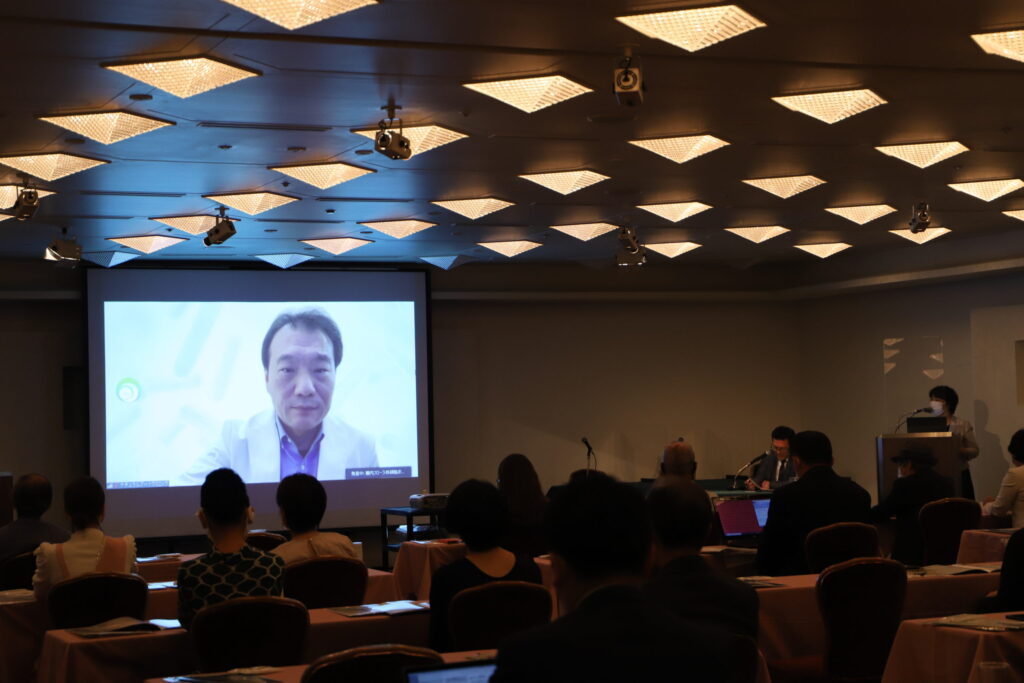
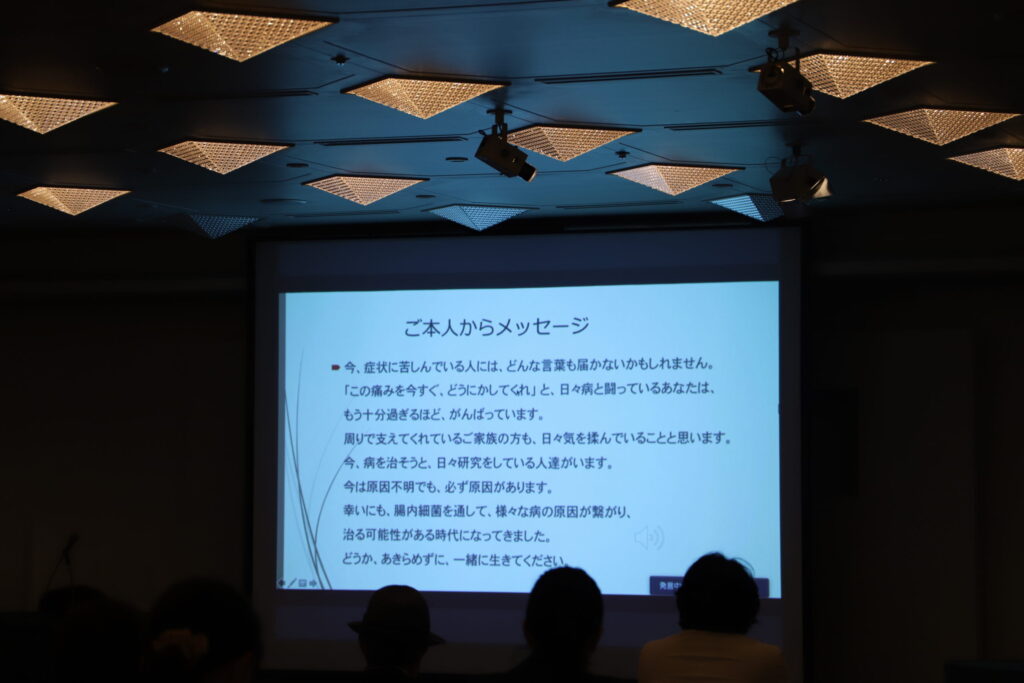
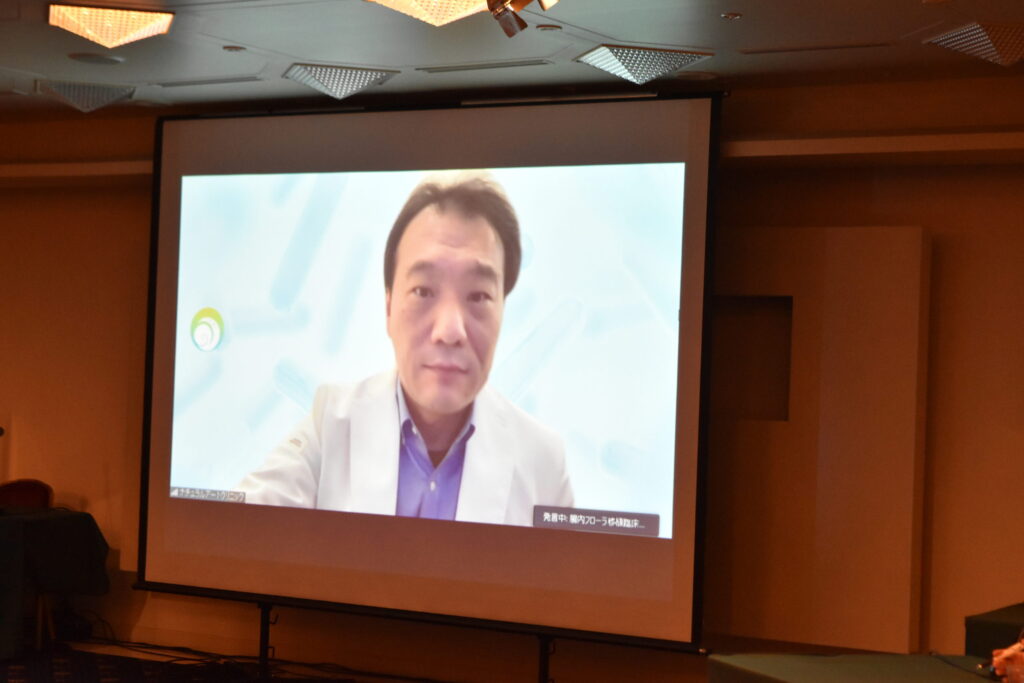
►Dr. Masayuki Aueholm, Director, Life Clinic Tateshina
Life Clinic Tateshina Director
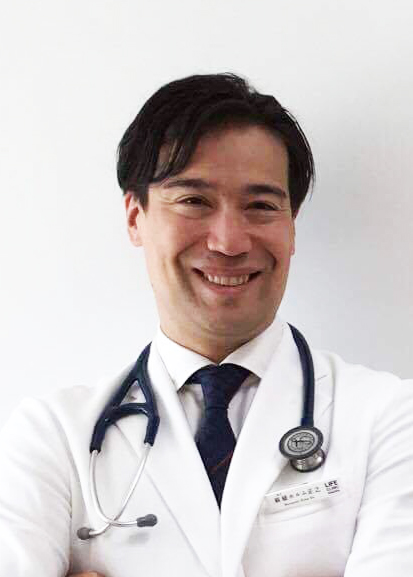 ULCERATIVE COLITIS (UC) IS ONE OF THE MOST COMMON AND GROWING DISEASES IN THE WORLD, INCLUDING JAPAN. FECAL MICROFLORA TRANSPLANTATION (FMT) FOR UC IS NOT A COMMON TREATMENT FOR UC AT PRESENT, BUT IT IS A TREATMENT THAT IS EXPECTED TO PROVIDE SLOW HEALING BY ALTERING THE INTESTINAL FLORA. In this study, we experienced two cases of UC and one case of dementia complicated with chronic sinusitis treated with the patent-pending NanoGAS®-FMT, which is a value-added procedure that mixes NanoGAS® and fecal bacteria solution, instead of the conventional FMT that mixes saline solution and fecal bacteria solution. Cases were reported with improvement in physical symptoms, mental symptoms, and intestinal flora balance.
ULCERATIVE COLITIS (UC) IS ONE OF THE MOST COMMON AND GROWING DISEASES IN THE WORLD, INCLUDING JAPAN. FECAL MICROFLORA TRANSPLANTATION (FMT) FOR UC IS NOT A COMMON TREATMENT FOR UC AT PRESENT, BUT IT IS A TREATMENT THAT IS EXPECTED TO PROVIDE SLOW HEALING BY ALTERING THE INTESTINAL FLORA. In this study, we experienced two cases of UC and one case of dementia complicated with chronic sinusitis treated with the patent-pending NanoGAS®-FMT, which is a value-added procedure that mixes NanoGAS® and fecal bacteria solution, instead of the conventional FMT that mixes saline solution and fecal bacteria solution. Cases were reported with improvement in physical symptoms, mental symptoms, and intestinal flora balance.Dr. Masayuki Asaueholm, who opened a clinic in Tateshina, Japan, with the motto ” Make people and the community happy through medical care.“Dr. Masayuki Asueholm, who opened his clinic in Chino City, which is rich in the nature of Tateshina, under the motto of “Making people and communities happy through medical care,” presented a case report on two cases of ulcerative colitis and a case of dementia complicated by chronic sinusitis.
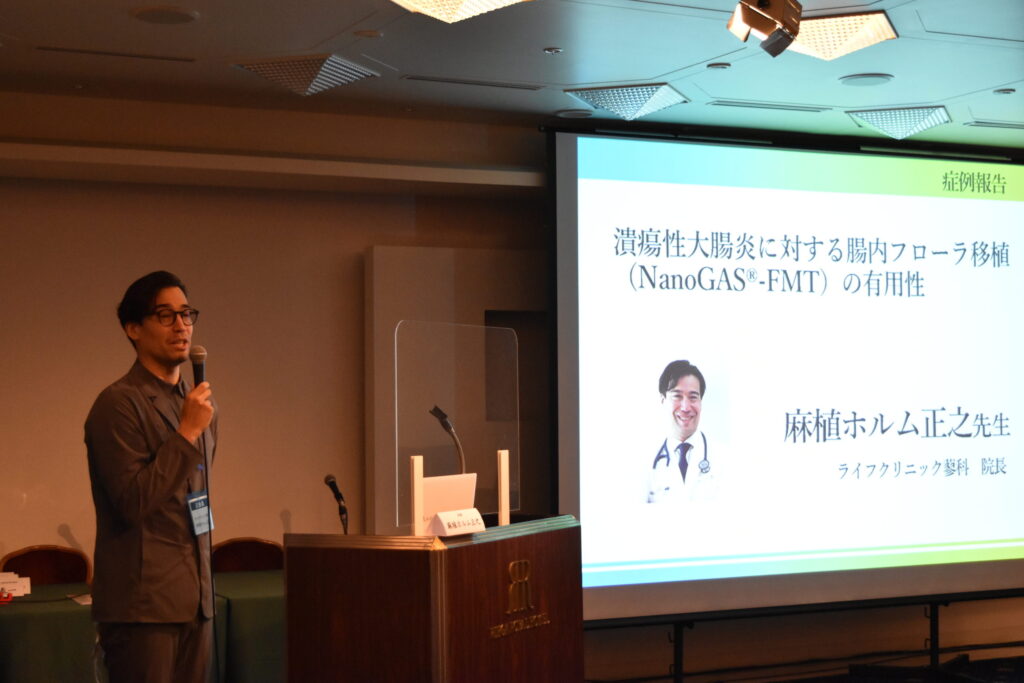
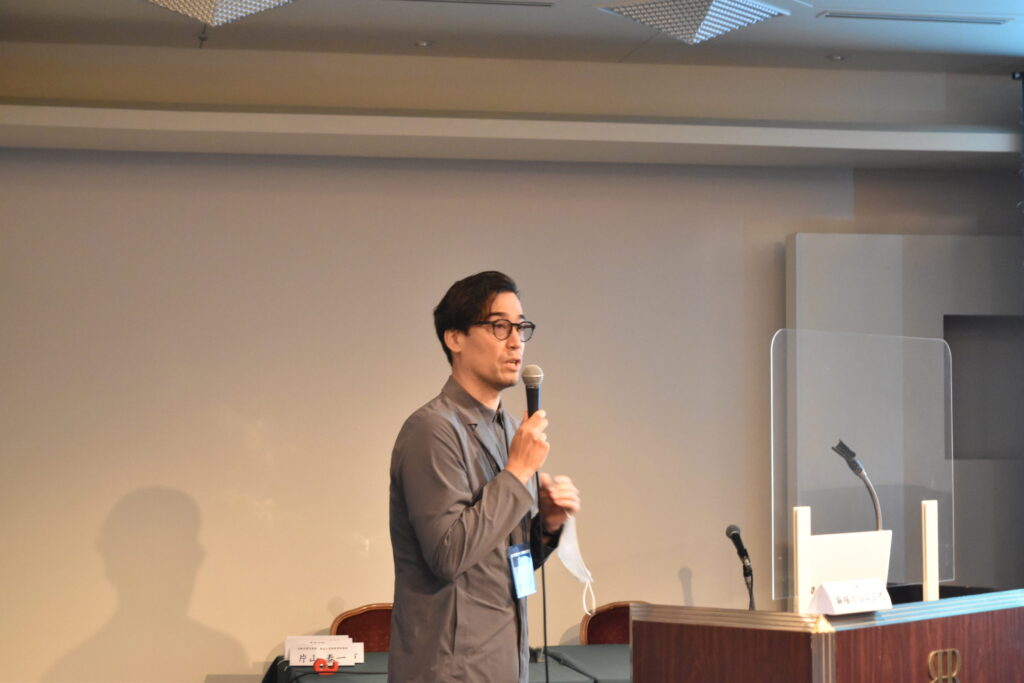
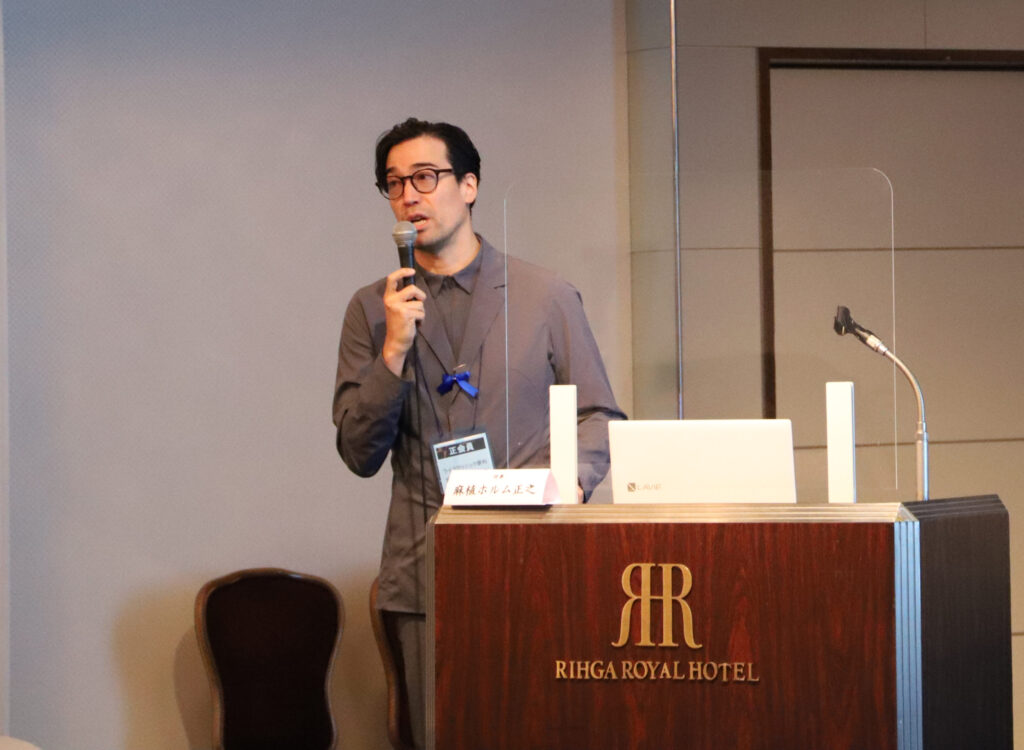
Lunch (Introduction of sponsors)
Sponsors were announced during the lunch break.
We would like to thank all those who cooperated in sponsoring the event.
Hart’s Food Creations, Inc.
KIN-TOSS
Love I Food Education, Inc.
SOPHIA Corporation
Litanial Bioscience Inc.
Ohtaka Enzyme Corporation (online participation)
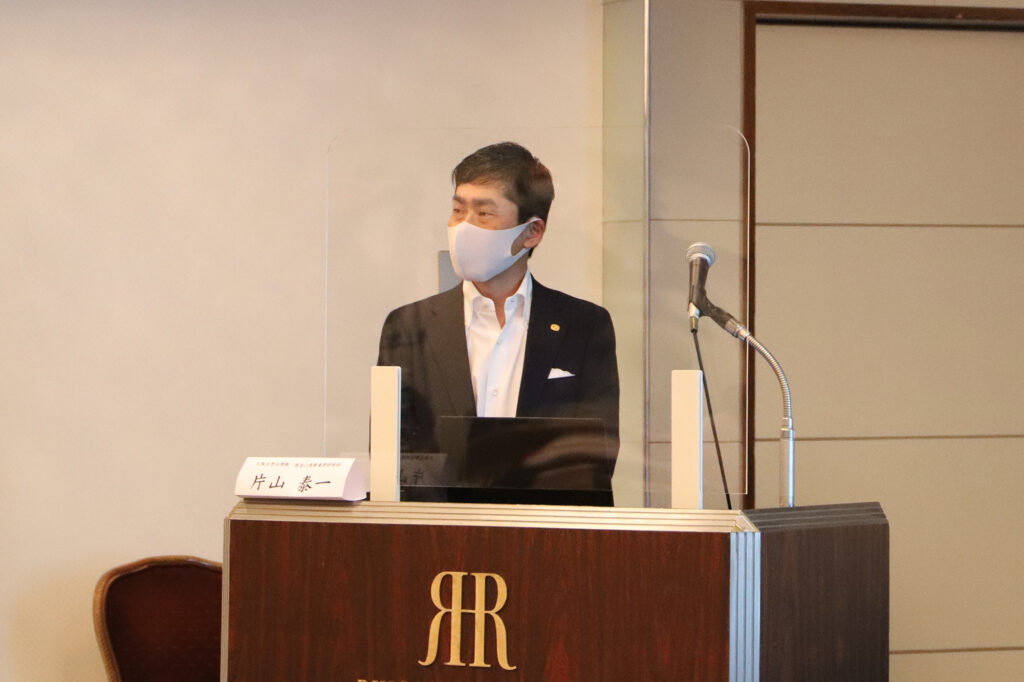
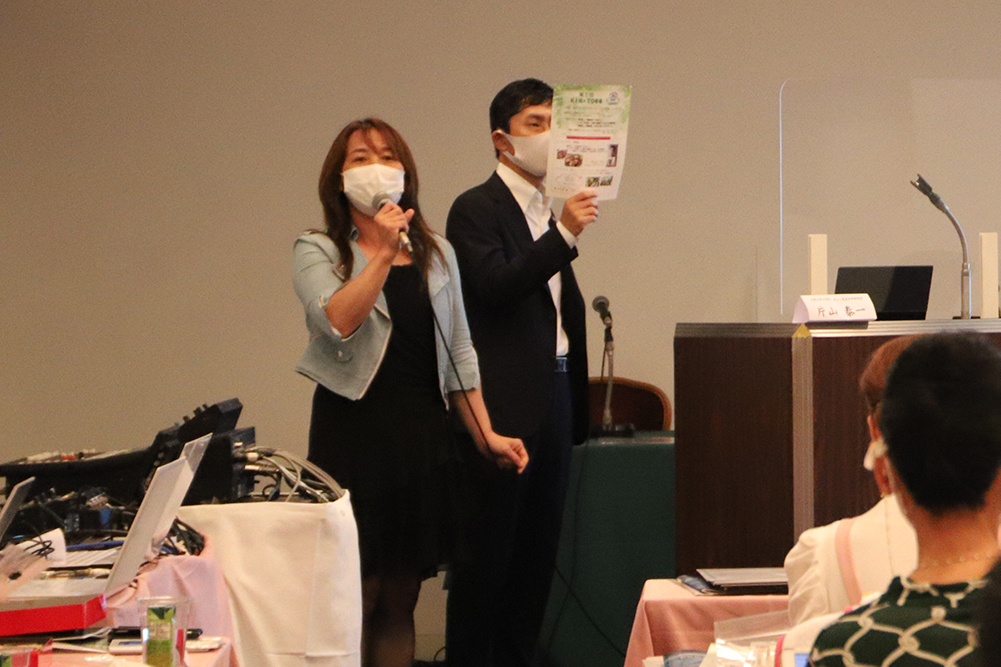
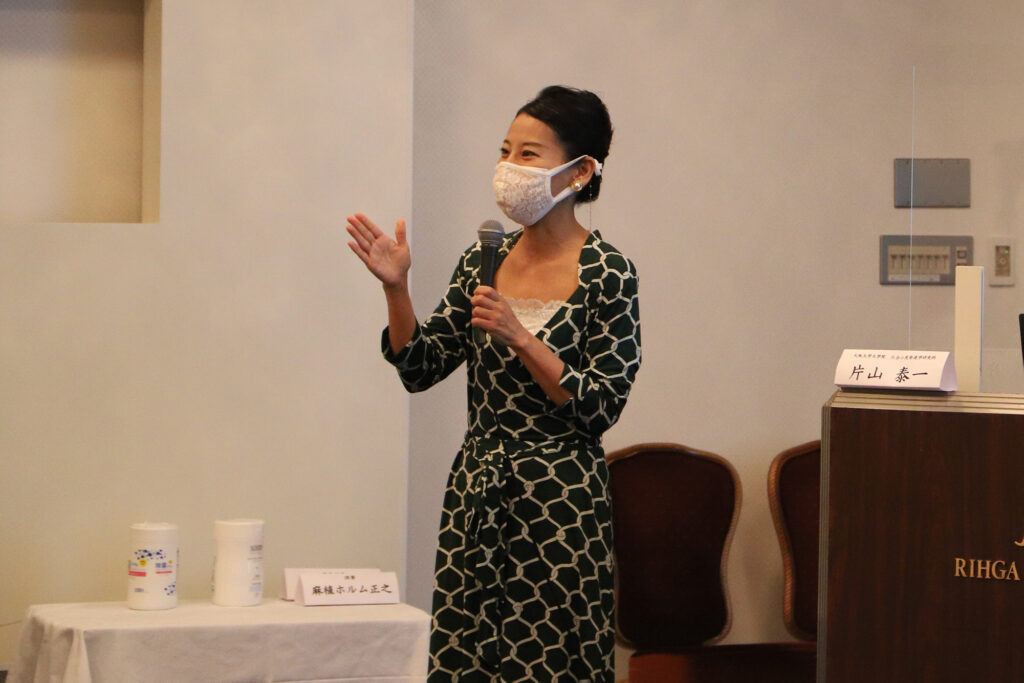
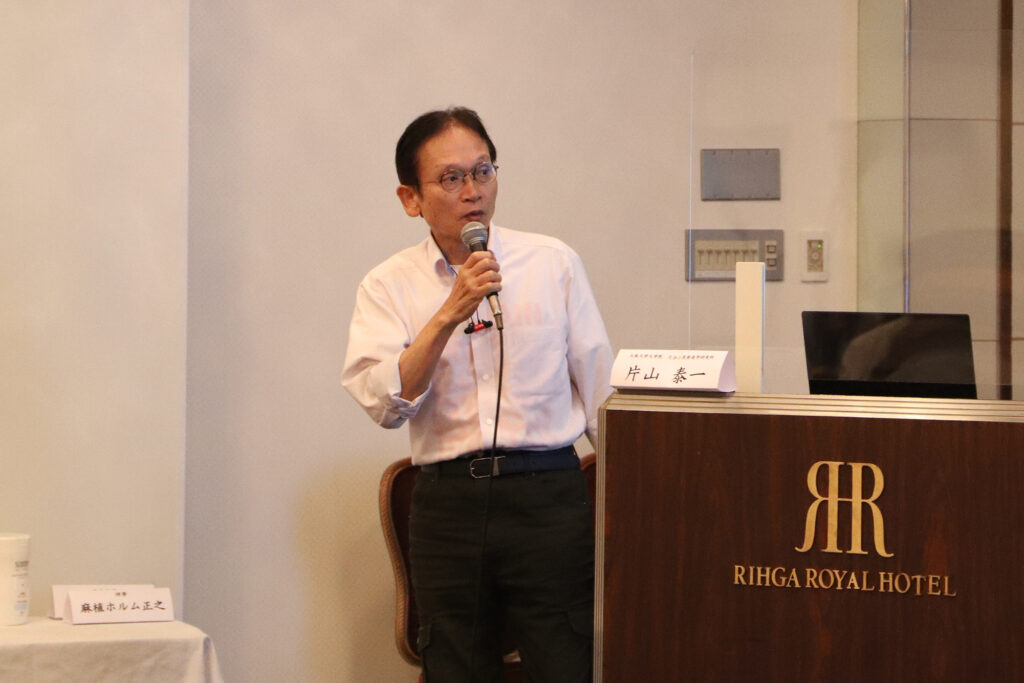
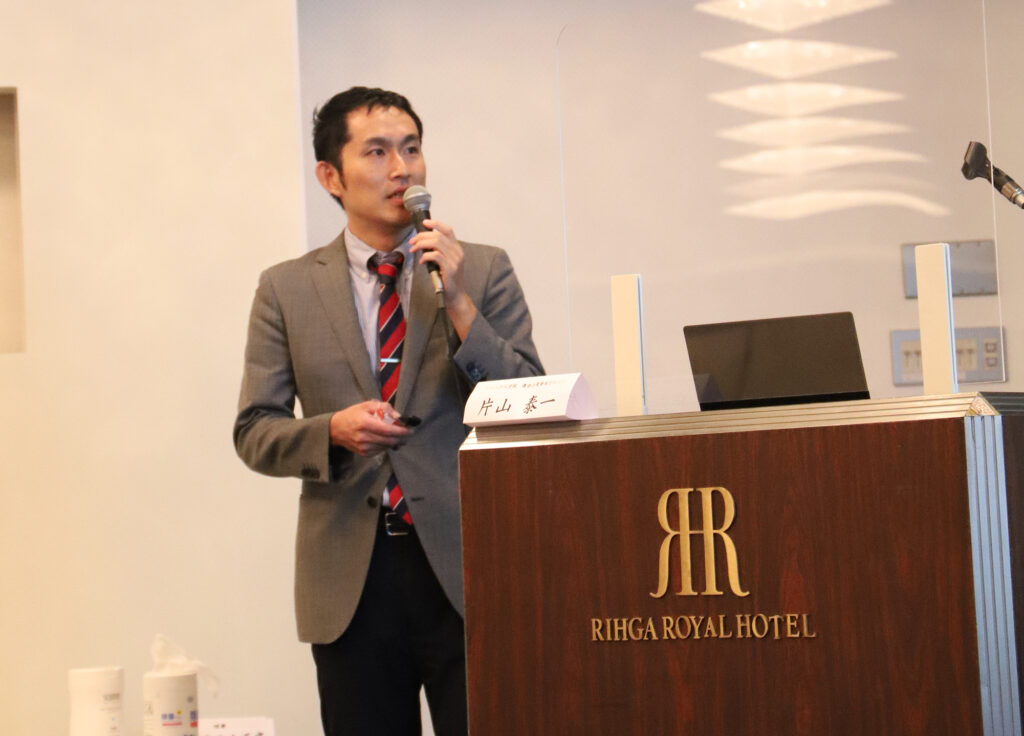
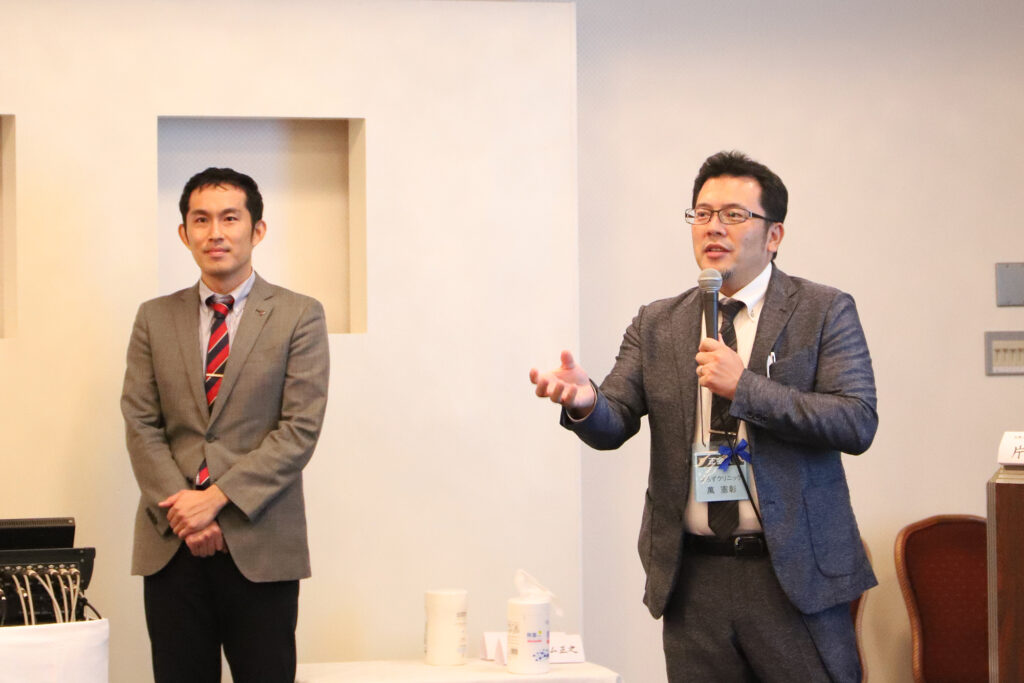
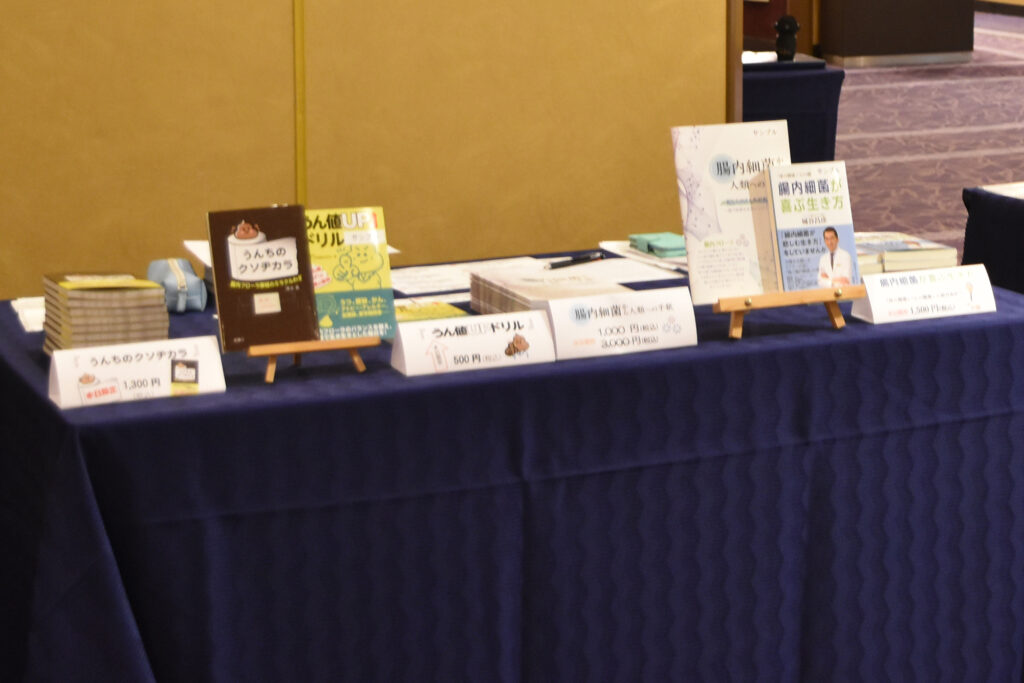
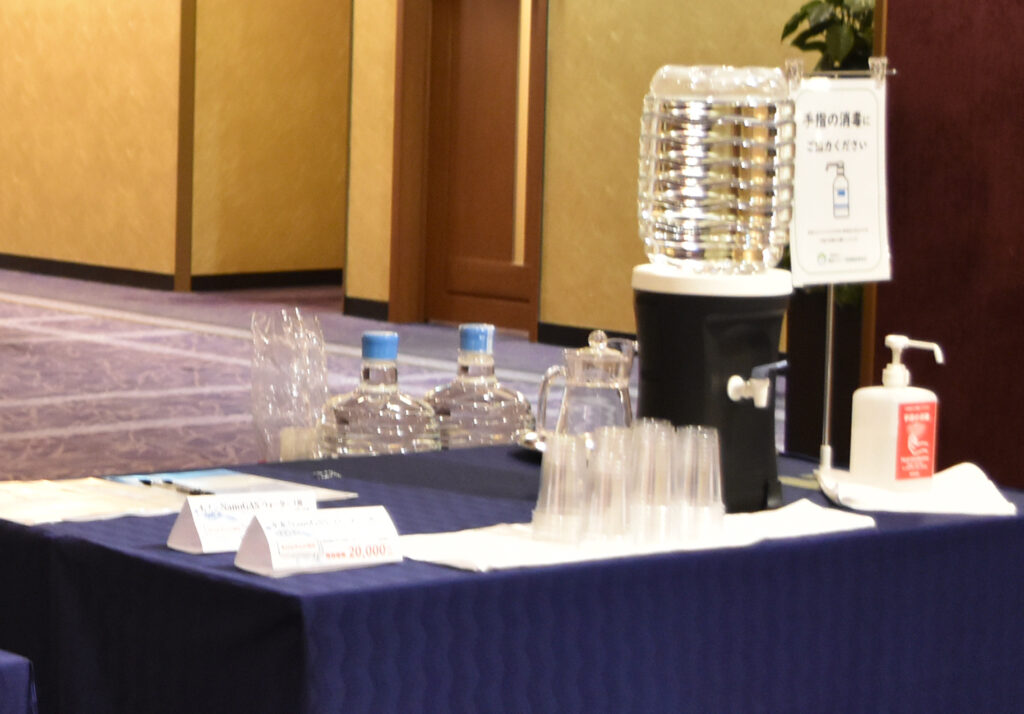
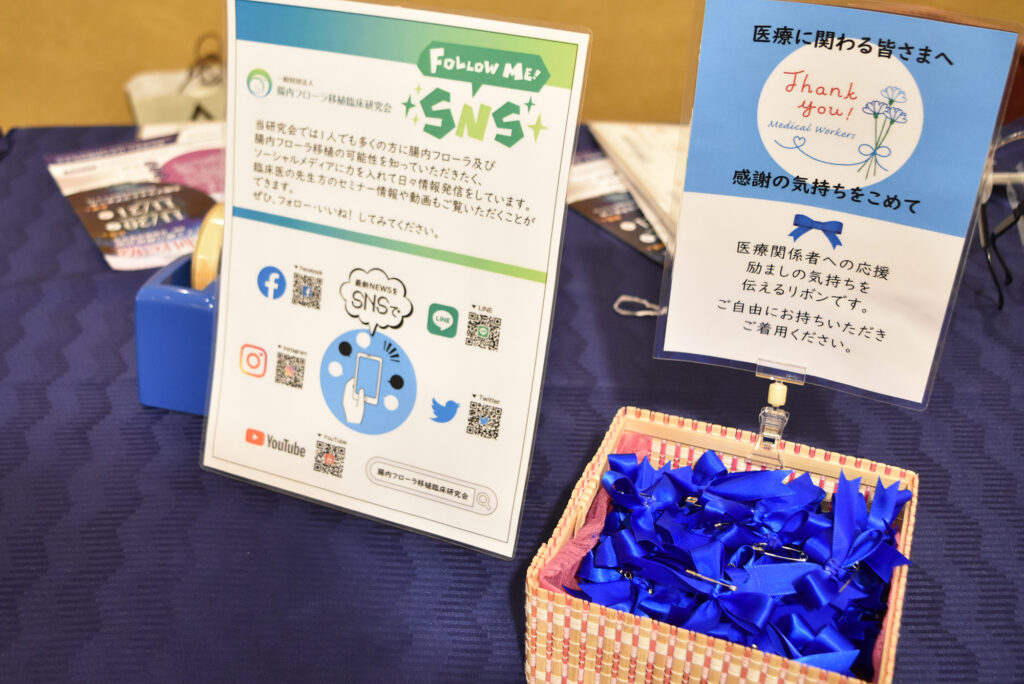
The afternoon began with a keynote address.
keynote speech
►Deputy Dean, United Graduate School of Child Development, Osaka University
Professor Taiichi Katayama, Professor, Division of Molecular Biogenetics
Vice Dean, United Graduate School of Child Development, Osaka University
Professor, Division of Molecular Biogenetics
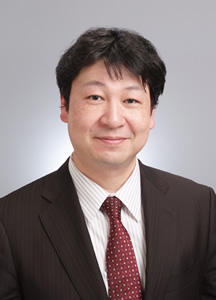 In recent years, various issues related to “autistic spectrum disorder” have been widely discussed in society. However, correct knowledge and understanding of “autistic spectrum disorder” has not yet advanced. One of the reasons for this is that there is a lack of means for others to understand how people with autism spectrum disorder feel and think, and it is difficult to understand from the outside. Therefore, Gazefinder (GF) was developed as a simple and objective visualization tool that anyone can understand. As one of the people involved in the development of the GF, this presentation will be a comprehensive talk that aims to share with the attendees an overview of how to understand the autism spectrum disorder, its challenges, and its scientific solutions in a way that is as easy to understand as possible. In turn, we hope that you will understand the importance of having a “common ground” to understand the differences between oneself and others.
In recent years, various issues related to “autistic spectrum disorder” have been widely discussed in society. However, correct knowledge and understanding of “autistic spectrum disorder” has not yet advanced. One of the reasons for this is that there is a lack of means for others to understand how people with autism spectrum disorder feel and think, and it is difficult to understand from the outside. Therefore, Gazefinder (GF) was developed as a simple and objective visualization tool that anyone can understand. As one of the people involved in the development of the GF, this presentation will be a comprehensive talk that aims to share with the attendees an overview of how to understand the autism spectrum disorder, its challenges, and its scientific solutions in a way that is as easy to understand as possible. In turn, we hope that you will understand the importance of having a “common ground” to understand the differences between oneself and others.OUR STUDY GROUP IS CURRENTLY WORKING ON THE EFFECTS OF FMT ON GASTROINTESTINAL SYMPTOMS AND CHANGES IN GUT FLORA IN AUTISM SPECTRUM DISORDERS. IN ADDITION TO PHYSICIAN FINDINGS AND CHANGES IN GUT FLORA BALANCE, WE ARE ASKING PARENTS TO COOPERATE BY FILLING OUT VARIOUS CHECK SHEETS AND DAILY CHANGES ONLINE.
Until now, most of the changes that occurred as a result of transplantation were based on the observations of family members and caregivers, not the person himself/herself. Furthermore, Professor Taiichi Katayama believed that the problem was that other people lacked the means to understand how people with autism spectrum disorder feel and think, making it difficult for them to be seen from the outside.
In response, he was involved in the development of the “Gaze Finder,” a simple and objective visualization tool that anyone can understand, and it is currently being introduced in some municipalities, mainly in Osaka Prefecture, for one-and-a-half year checkups.
He talked about the development process of the “Gaze Finder,” a gazing point detection device developed by Professor Taiichi Katayama and his colleagues, how it captures the characteristics of autism spectrum disorder, and future issues.
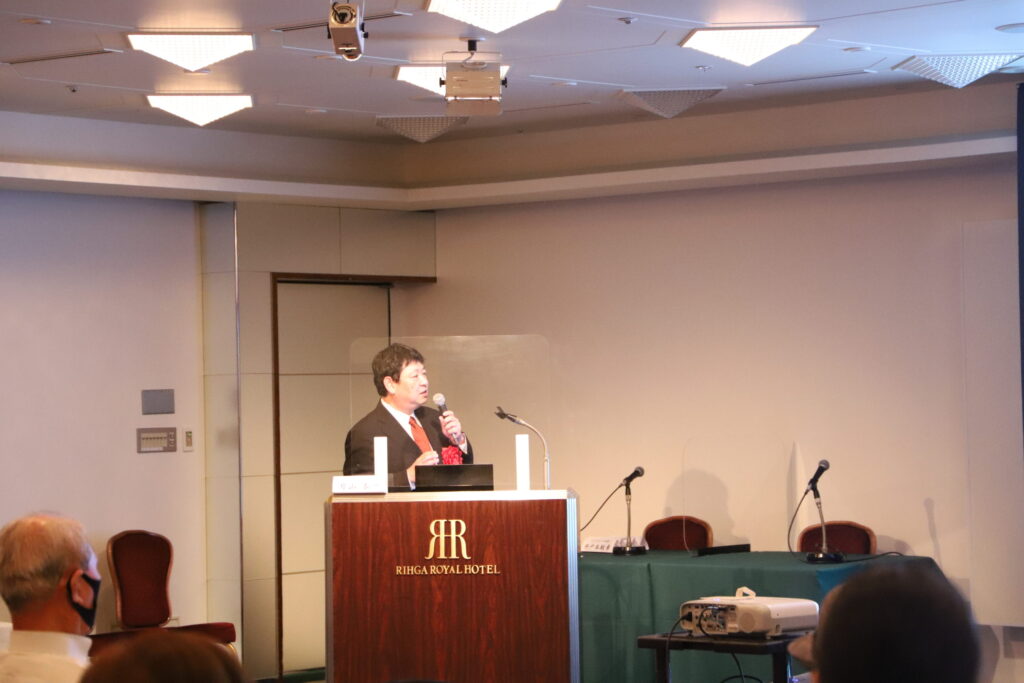
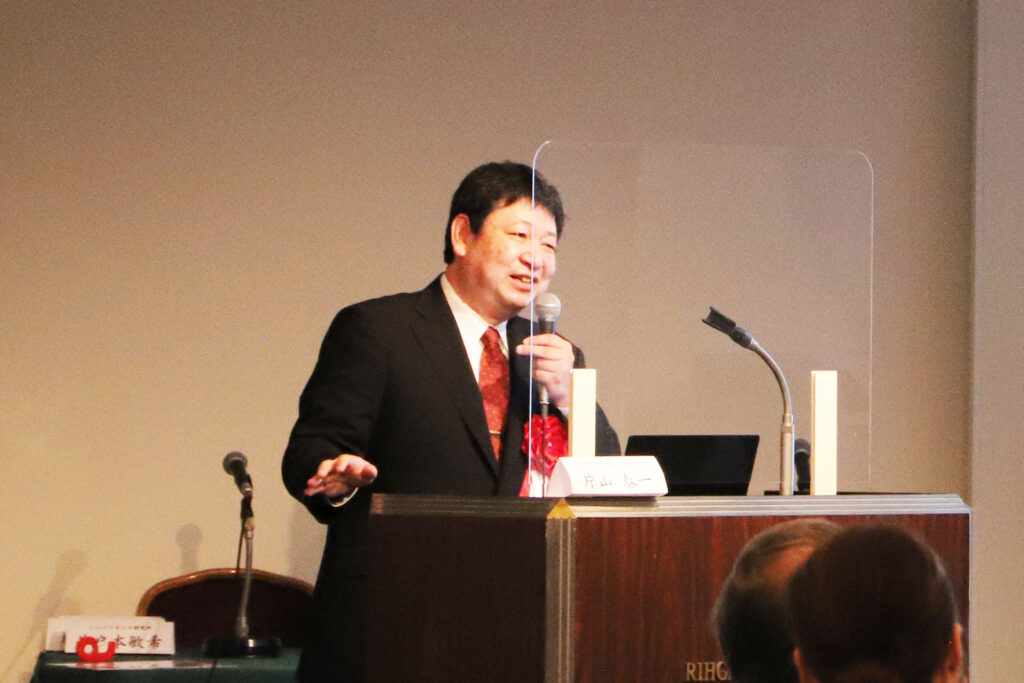
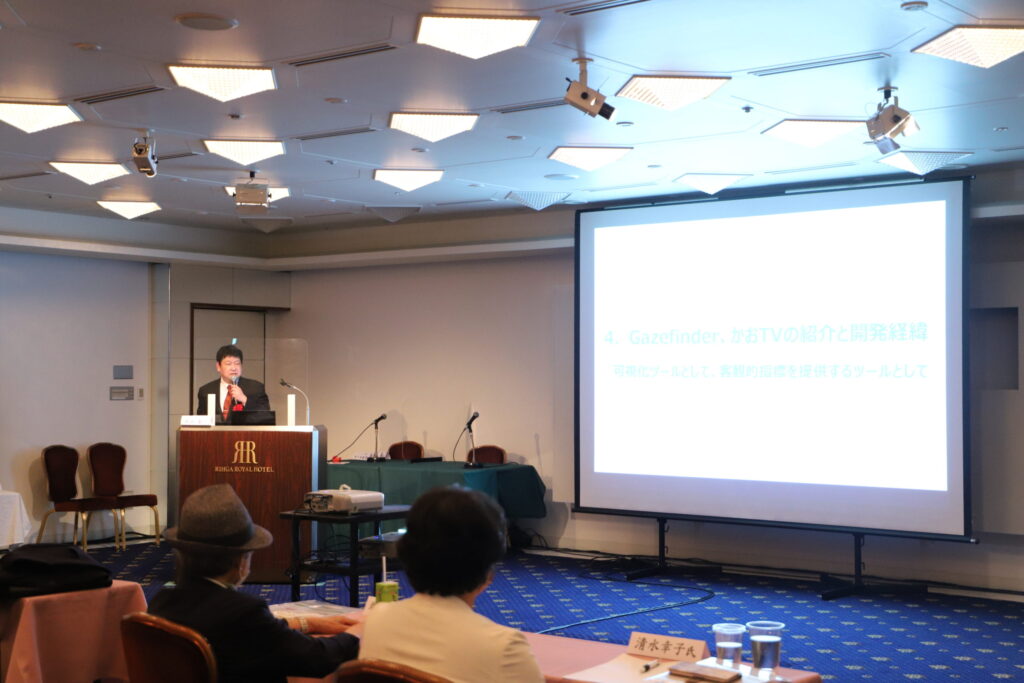
ASD CASE AGGREGATION
►Toshiki Idomoto, Symbiosis Research Institute
Symbiosis Institute
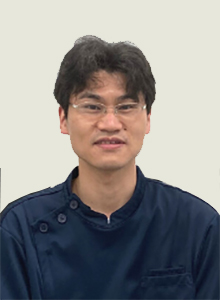 THE RELATIONSHIP BETWEEN VARIOUS DISEASES AND THE INTESTINAL MICROBIOTA HAS BEEN REVEALED ONE AFTER ANOTHER, AND IN RECENT YEARS, THE INTESTINAL MICROBIOTA HAS ATTRACTED ATTENTION NOT ONLY FOR DIGESTIVE DISORDERS, BUT ALSO BECAUSE IT IS SAID THAT THE INTESTINAL MICROBIOTA MAY BE ASSOCIATED WITH AUTISTIC SPECTRUM DISORDER (ASD). WE PERFORMED INTESTINAL FLORA TRANSPLANTATION (FMT) IN SEVEN INDIVIDUALS (SIX MALES AND ONE FEMALE) DIAGNOSED WITH ASD. THE ABC-J, CALLED THE ABNORMAL BEHAVIOR CHECKLIST, SCORES AND EVALUATES BEHAVIORAL PROBLEMS IN ASD, AND THE SRS-2, CALLED THE INTERPERSONAL RESPONSIVENESS SCALE, IS A PSYCHOLOGICAL TEST ALSO USED AS A DIAGNOSTIC TOOL FOR ASD. THE SRS-2, ALSO KNOWN AS THE INTERPERSONAL RESPONSIVENESS SCALE, IS A PSYCHOLOGICAL TEST THAT IS ALSO USED AS A DIAGNOSTIC TOOL FOR ASD. In addition, using the Gazefinder, a gaze-measuring device that can objectively distinguish between children with typical development and those with ASD tendencies by following the subjects’ gaze, we examined whether there were any changes in the way the subjects saw things before and after the FMT. THE DATA FROM THESE PSYCHOLOGICAL TESTS AND MEASUREMENTS WERE COMPILED AND FOUND THAT FMT MAY BE AN OPTION FOR IMPROVING ASD DIFFICULTIES. WE REPORT A SUMMARY OF THE DATA COMPILED IN THE PRESENT STUDY AND THE DISCUSSION THAT RESULTS FROM IT.
THE RELATIONSHIP BETWEEN VARIOUS DISEASES AND THE INTESTINAL MICROBIOTA HAS BEEN REVEALED ONE AFTER ANOTHER, AND IN RECENT YEARS, THE INTESTINAL MICROBIOTA HAS ATTRACTED ATTENTION NOT ONLY FOR DIGESTIVE DISORDERS, BUT ALSO BECAUSE IT IS SAID THAT THE INTESTINAL MICROBIOTA MAY BE ASSOCIATED WITH AUTISTIC SPECTRUM DISORDER (ASD). WE PERFORMED INTESTINAL FLORA TRANSPLANTATION (FMT) IN SEVEN INDIVIDUALS (SIX MALES AND ONE FEMALE) DIAGNOSED WITH ASD. THE ABC-J, CALLED THE ABNORMAL BEHAVIOR CHECKLIST, SCORES AND EVALUATES BEHAVIORAL PROBLEMS IN ASD, AND THE SRS-2, CALLED THE INTERPERSONAL RESPONSIVENESS SCALE, IS A PSYCHOLOGICAL TEST ALSO USED AS A DIAGNOSTIC TOOL FOR ASD. THE SRS-2, ALSO KNOWN AS THE INTERPERSONAL RESPONSIVENESS SCALE, IS A PSYCHOLOGICAL TEST THAT IS ALSO USED AS A DIAGNOSTIC TOOL FOR ASD. In addition, using the Gazefinder, a gaze-measuring device that can objectively distinguish between children with typical development and those with ASD tendencies by following the subjects’ gaze, we examined whether there were any changes in the way the subjects saw things before and after the FMT. THE DATA FROM THESE PSYCHOLOGICAL TESTS AND MEASUREMENTS WERE COMPILED AND FOUND THAT FMT MAY BE AN OPTION FOR IMPROVING ASD DIFFICULTIES. WE REPORT A SUMMARY OF THE DATA COMPILED IN THE PRESENT STUDY AND THE DISCUSSION THAT RESULTS FROM IT. 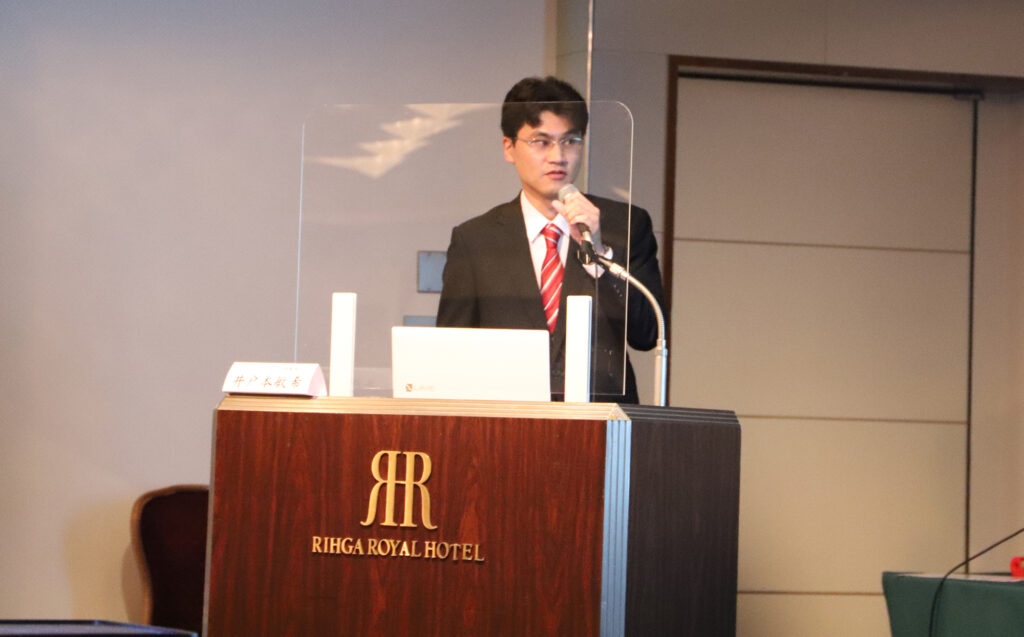
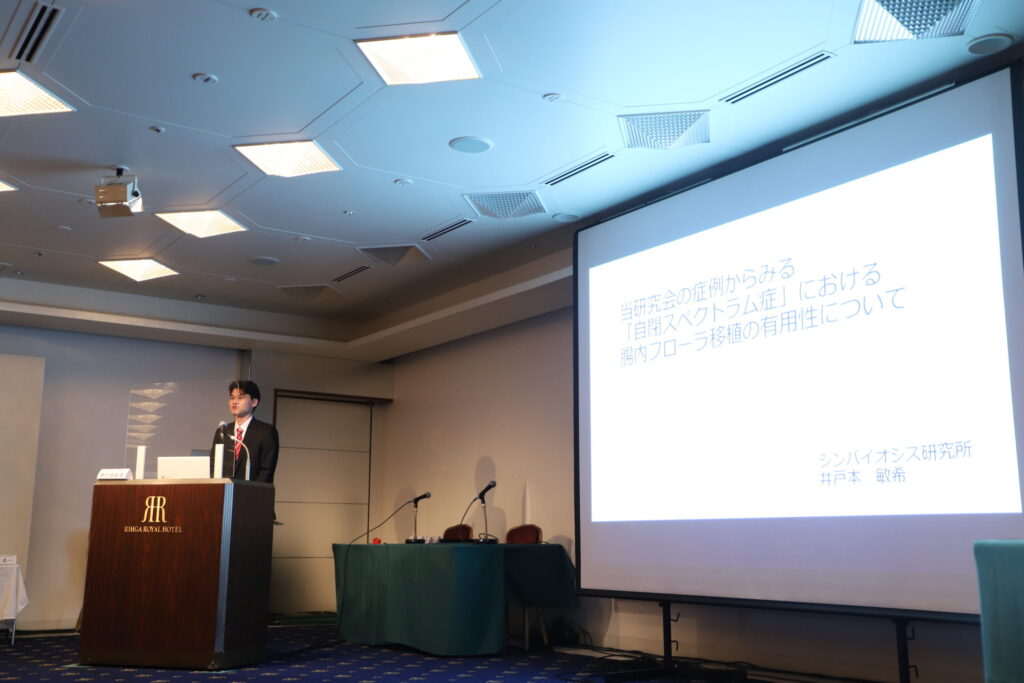

THE SYMBIOSIS INSTITUTE REPORTED A SUMMARY OF THE DATA FROM THE GAZE FINDER MEASUREMENTS ON SEVEN CHILDREN DIAGNOSED WITH ASD WHO HAD UNDERGONE INTESTINAL FLORA TRANSPLANTATION, AND THE INSIGHTS THAT CAN BE DRAWN FROM THE DATA.
STUDIES HAVE SHOWN THAT PEOPLE WITH ASD SPEND LESS TIME LOOKING AT A PERSON’S EYE AREA (I.E., HAVE DIFFICULTY MAKING EYE CONTACT WITH A PERSON) THAN PEOPLE WITH TYPICAL DEVELOPMENT. IN THIS GAZE FINDER, A PICTURE OF A PERSON AND A GEOMETRIC PATTERN ARE SIMULTANEOUSLY PLACED LEFT AND RIGHT ON THE SCREEN TO MEASURE HOW THE PERSON LOOKS AT THE SCREEN.
ALTHOUGH OUR RESEARCH ON ASD AND INTESTINAL BACTERIA HAS ONLY JUST BEGUN, WE ARE PLEASED TO REPORT THAT WE HAVE MADE NEW DISCOVERIES THROUGH THE CHILD’S BEHAVIOR, CHANGES IN THE INTESTINAL FLORA BALANCE, AND THROUGH OBJECTIVE MEASUREMENTS WITH THIS GAZE FINDER.
ASD CASE REPORT
►Dr. Masahiko Shirotani, Executive Director (Director, Luke’s Ashiya Clinic)
Luke’s Ashiya Clinic Director
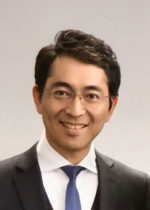 In recent years, the relationship between the intestinal microbiota and the risk of various diseases has been clarified against the background of rapid progress in metagenome analysis technology for intestinal bacteria. The prevalence of children with autism spectrum disorder (ASD) in Japan is said to be increasing year by year, and it is now known that the intestinal microbiota of children with ASD shows differences in specific bacterial species and composition patterns and disorders of diversity (dysbiosis). We performed intestinal flora transplantation (FMT) in children with ASD and used the ABC-J and SRS-2 to assess changes in behavior and the Gastrointestinal Symptom Rating Scale (GSRS) to assess changes in gastrointestinal symptoms, in addition to changes in intestinal flora before and after FMT. In addition, changes in gazing targets were assessed using a gazing point distribution measuring device (Gazefinder) to evaluate the difficulty of eye contact and lack of interest in others that are often seen in ASD. In addition, from a psycho-clinical perspective, changes in drawing tests before and after FMT were also discussed. ALTHOUGH THE NUMBER OF CASES IS STILL SMALL, SOME OF THE CASES EXPERIENCED BY OUR STUDY GROUP SUGGEST THAT FMT IS EFFECTIVE IN IMPROVING SYMPTOMS RELATED TO AUTISM, SUGGESTING THAT FMT MAY BE AN OPTION IN THE CARE OF CHILDREN WITH ASD. WE REPORT OUR EXPERIENCE IN THIS CASE STUDY, INCLUDING PSYCHO-CLINICAL CONSIDERATIONS.
In recent years, the relationship between the intestinal microbiota and the risk of various diseases has been clarified against the background of rapid progress in metagenome analysis technology for intestinal bacteria. The prevalence of children with autism spectrum disorder (ASD) in Japan is said to be increasing year by year, and it is now known that the intestinal microbiota of children with ASD shows differences in specific bacterial species and composition patterns and disorders of diversity (dysbiosis). We performed intestinal flora transplantation (FMT) in children with ASD and used the ABC-J and SRS-2 to assess changes in behavior and the Gastrointestinal Symptom Rating Scale (GSRS) to assess changes in gastrointestinal symptoms, in addition to changes in intestinal flora before and after FMT. In addition, changes in gazing targets were assessed using a gazing point distribution measuring device (Gazefinder) to evaluate the difficulty of eye contact and lack of interest in others that are often seen in ASD. In addition, from a psycho-clinical perspective, changes in drawing tests before and after FMT were also discussed. ALTHOUGH THE NUMBER OF CASES IS STILL SMALL, SOME OF THE CASES EXPERIENCED BY OUR STUDY GROUP SUGGEST THAT FMT IS EFFECTIVE IN IMPROVING SYMPTOMS RELATED TO AUTISM, SUGGESTING THAT FMT MAY BE AN OPTION IN THE CARE OF CHILDREN WITH ASD. WE REPORT OUR EXPERIENCE IN THIS CASE STUDY, INCLUDING PSYCHO-CLINICAL CONSIDERATIONS.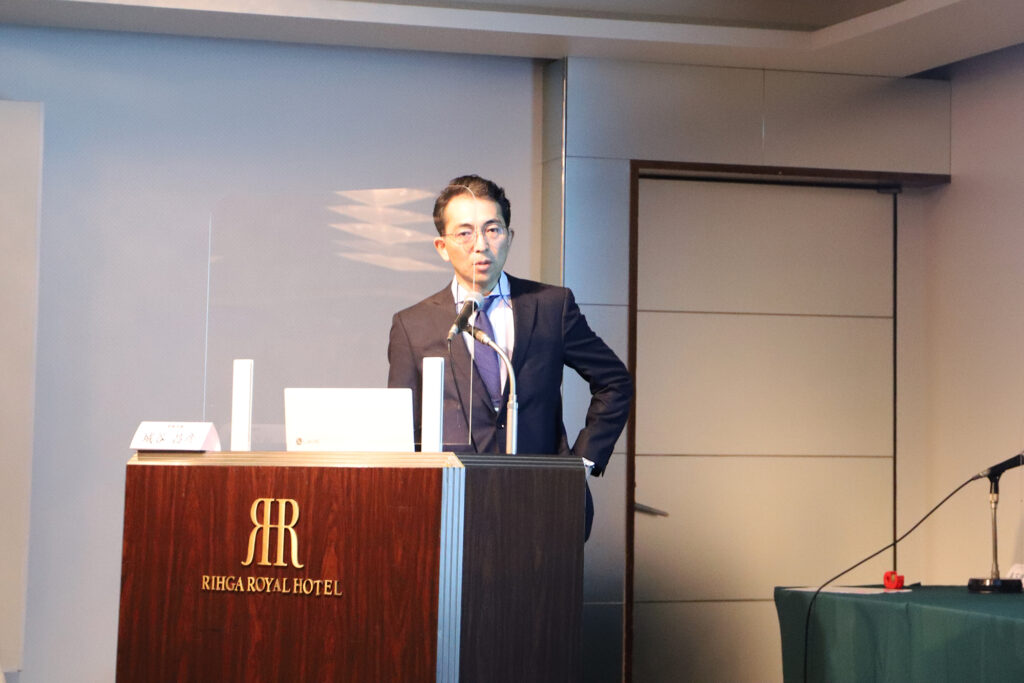
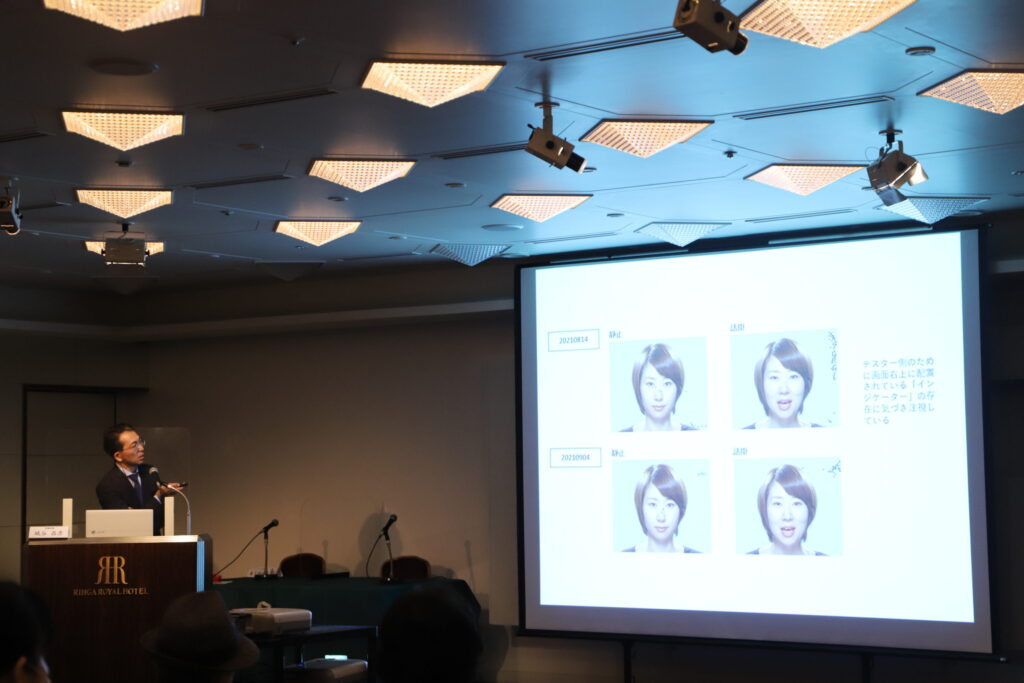
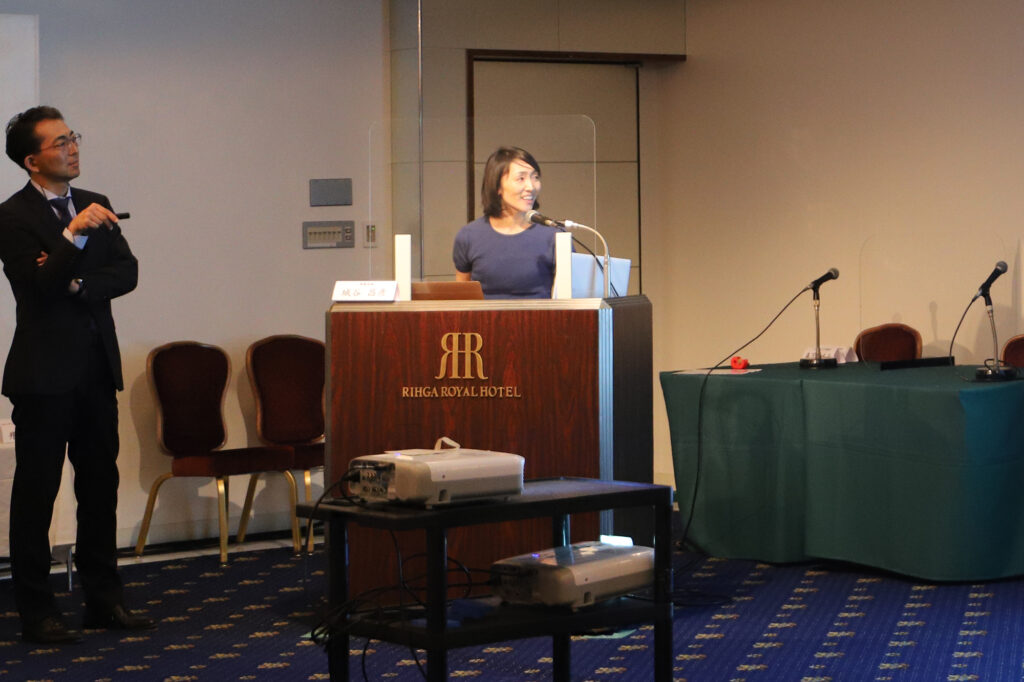
DR. MASAHIKO JOHYA, DIRECTOR OF LUKES ASHIYA CLINIC, REPORTED ON A CASE OF INTESTINAL FLORA TRANSPLANTATION (FMT) PERFORMED ON A CHILD WITH AUTISTIC SPECTRUM DISORDER (ASD).
IN ADDITION TO CHANGES IN INTESTINAL FLORA BEFORE AND AFTER FMT, LUKE’S ASHIYA CLINIC ALSO FOCUSED ON PSYCHOLOGICAL CHANGES IN DRAWING TESTS, AND A CLINICAL PSYCHOLOGIST GAVE AN INTERESTING REPORT AFTER DR. MASAHIKO SHIROTANI’S PRESENTATION THIS TIME.
panel discussion
Chairperson: Dr. Zen Tanaka, Representative Director(Director, Tanaka Clinic, Jinzenkai Medical Corporation)
Professor Taiichi Katayama, Vice Dean and Professor of Molecular Biogenetics, United Graduate School of Child Development, Osaka University
Dr. Masahiko Johya, Executive Director (Director, Luke’s Ashiya Clinic)
Director Dr. Kunihiro Kitamura (Director, Kitamura Clinic) <オンライン参加>
Senior Researcher Shimizu, Symbiosis Research Institute Makoto
Toshiki Idomoto, Symbiosis Research Institute
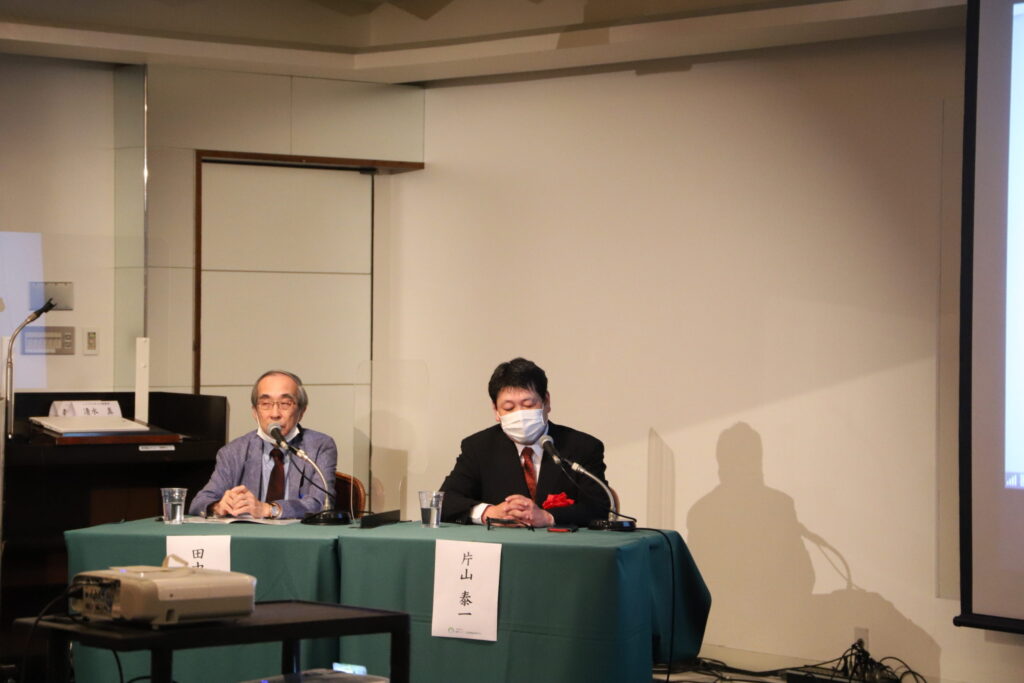
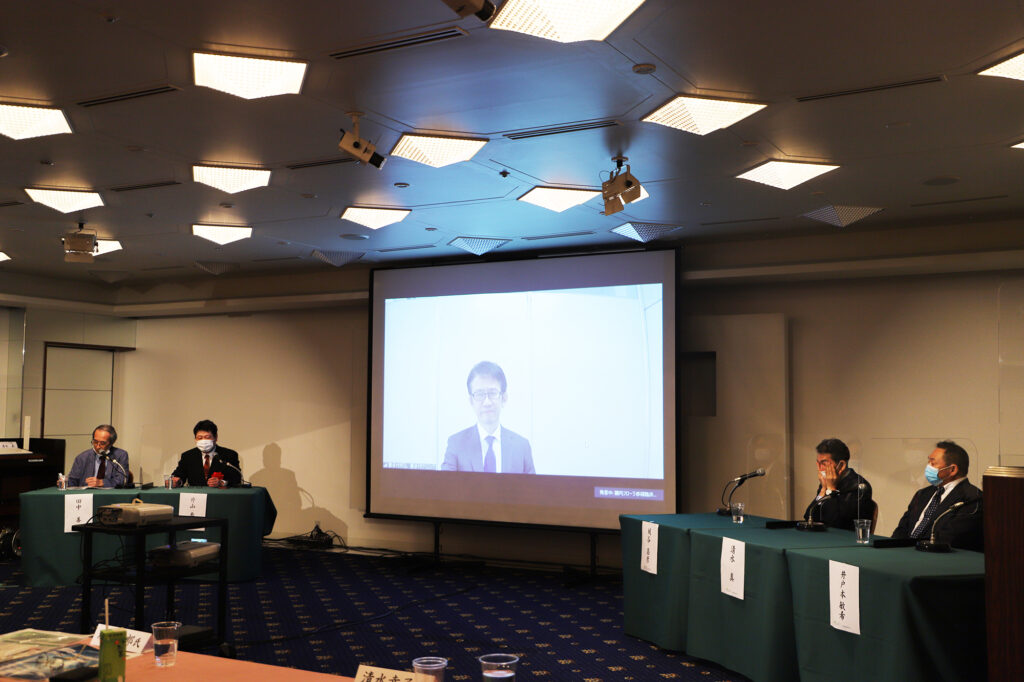
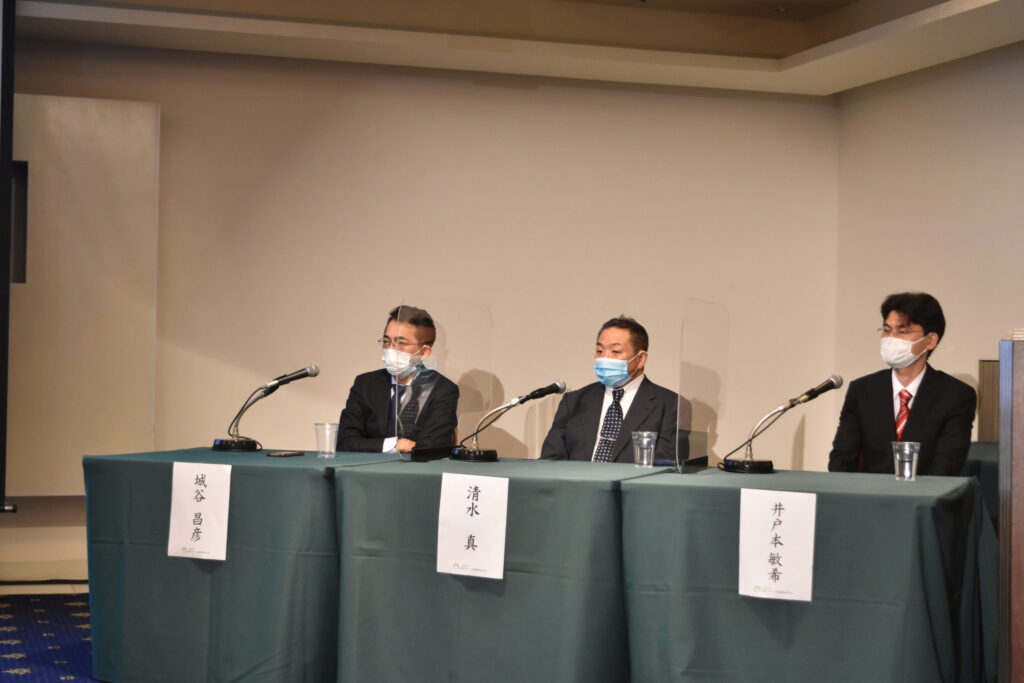
DR. TAIICHI KATAYAMA AND THE DOCTOR IN CHARGE EXPLAINED THE RESULTS OF THE CHECKLIST AND GAZE FINDER, AS WELL AS GRAPHS OF THE FLORA BALANCE OF ASD PATIENTS WHO HAVE ACTUALLY UNDERGONE TRANSPLANTS. DR. KUNIHIRO KITAMURA, DIRECTOR OF KITAMURA CLINIC, KIWAKAI KITAMURA MEDICAL CORPORATION, ALSO PARTICIPATED ONLINE FROM FUKUOKA PREFECTURE.
IN ADDITION, DR. TAIICHI KATAYAMA AND OTHER DOCTORS ANSWERED YOUR ONLINE QUESTIONS ABOUT ASD.
Basic Research Report
►Risako Morishita, Symbiosis Research Institute
Symbiosis Institute
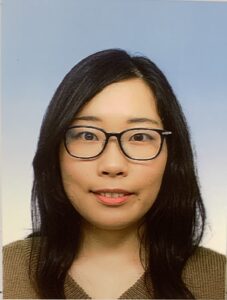 NanoGAS®︎ utilized for intestinal flora transplantation (FMT) has an excellent track record in the treatment of a wide range of diseases, including not only intestinal diseases such as irritable bowel syndrome and ulcerative colitis, but also skin diseases such as atopy and allergies, and mental disorders such as depression and autism. Scientific validation of NanoGAS®︎-FMT is underway, with a scientific paper on its efficacy against diabetic diseases being published in 2020. Among microbubbles, Nanobubble, with its special physical properties, is expected to have further potential to make a significant contribution to health science in general. Therefore, we have started various basic clinical studies from 2020 with the aim of utilizing NanoGAS®︎ in the fields of medicine, drug discovery, and food, and are evaluating its usefulness as a new material. We are pleased to present new findings on three research topics in the fields of pharmaceuticals, drug discovery, and food at the conference.
NanoGAS®︎ utilized for intestinal flora transplantation (FMT) has an excellent track record in the treatment of a wide range of diseases, including not only intestinal diseases such as irritable bowel syndrome and ulcerative colitis, but also skin diseases such as atopy and allergies, and mental disorders such as depression and autism. Scientific validation of NanoGAS®︎-FMT is underway, with a scientific paper on its efficacy against diabetic diseases being published in 2020. Among microbubbles, Nanobubble, with its special physical properties, is expected to have further potential to make a significant contribution to health science in general. Therefore, we have started various basic clinical studies from 2020 with the aim of utilizing NanoGAS®︎ in the fields of medicine, drug discovery, and food, and are evaluating its usefulness as a new material. We are pleased to present new findings on three research topics in the fields of pharmaceuticals, drug discovery, and food at the conference.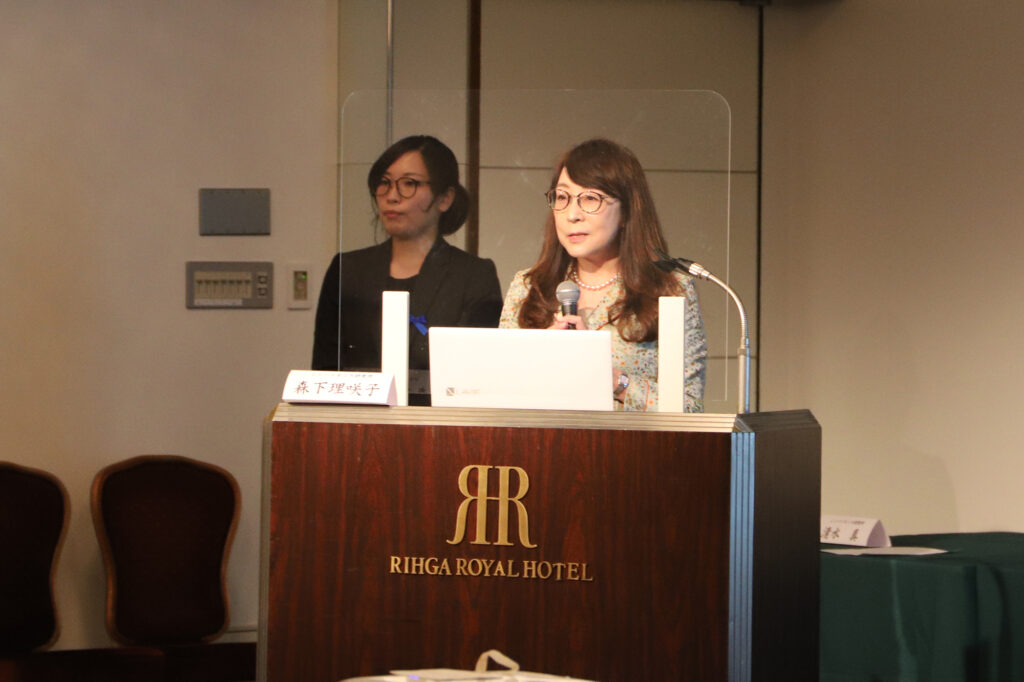
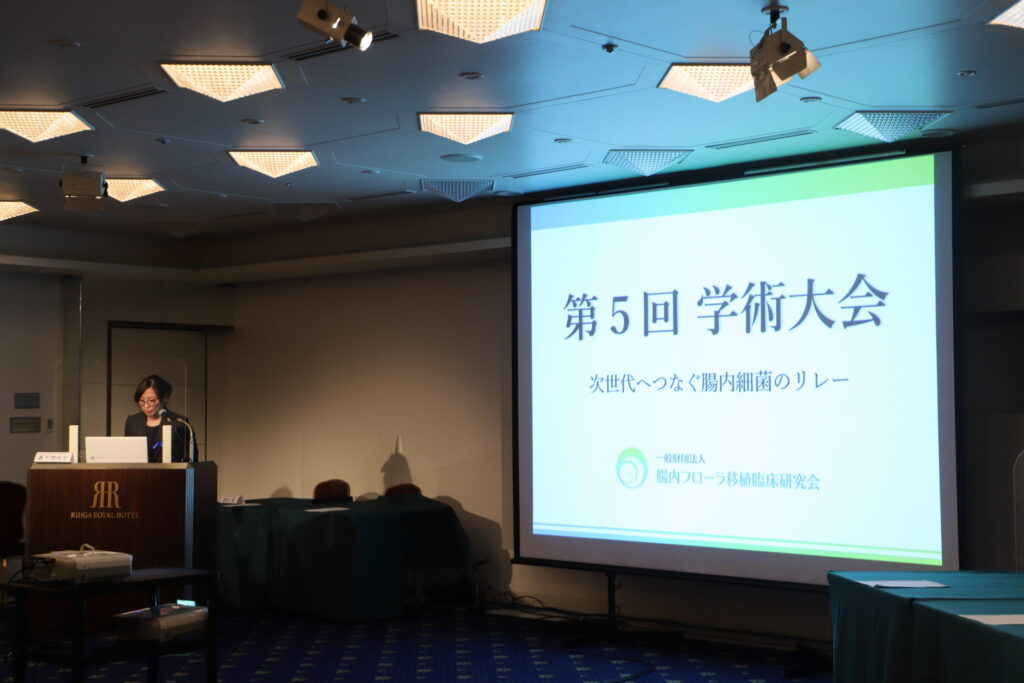
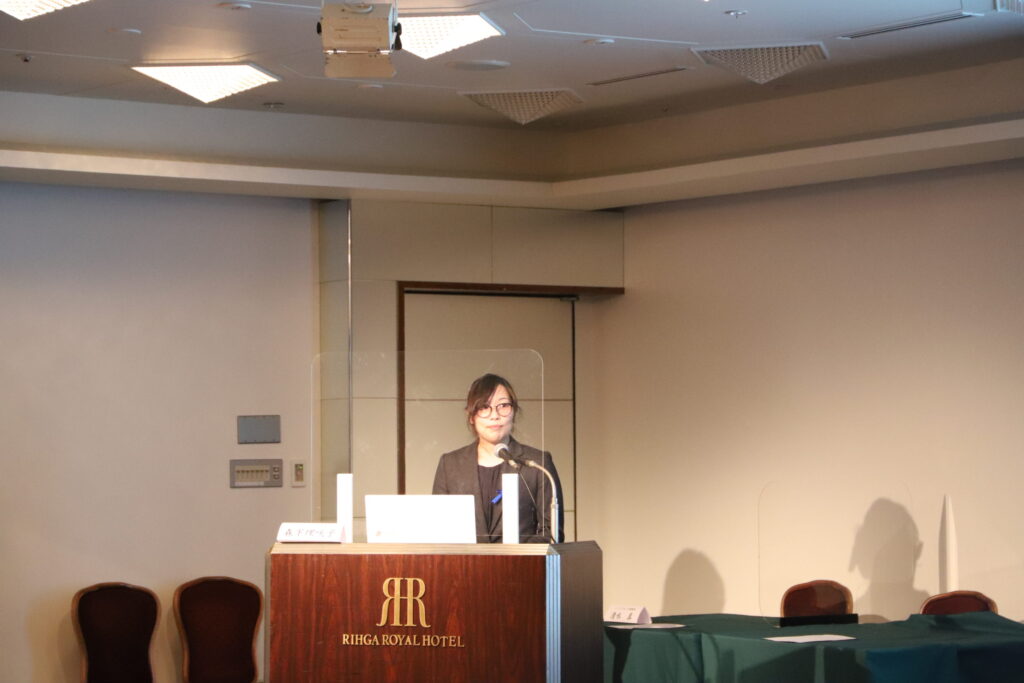
►Shin Shimizu, Senior Researcher, Symbiosis Research Institute
Dr. Makoto Shimizu, Senior Researcher at Symbiosis Research Institute, talked about the new challenge of intestinal flora transplantation in our research group.
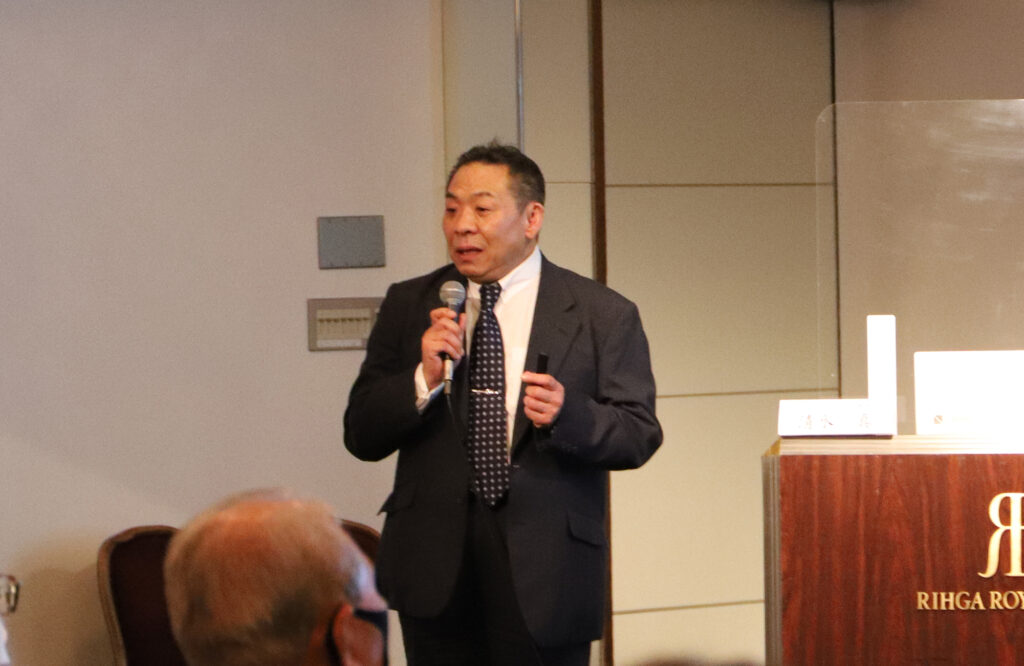
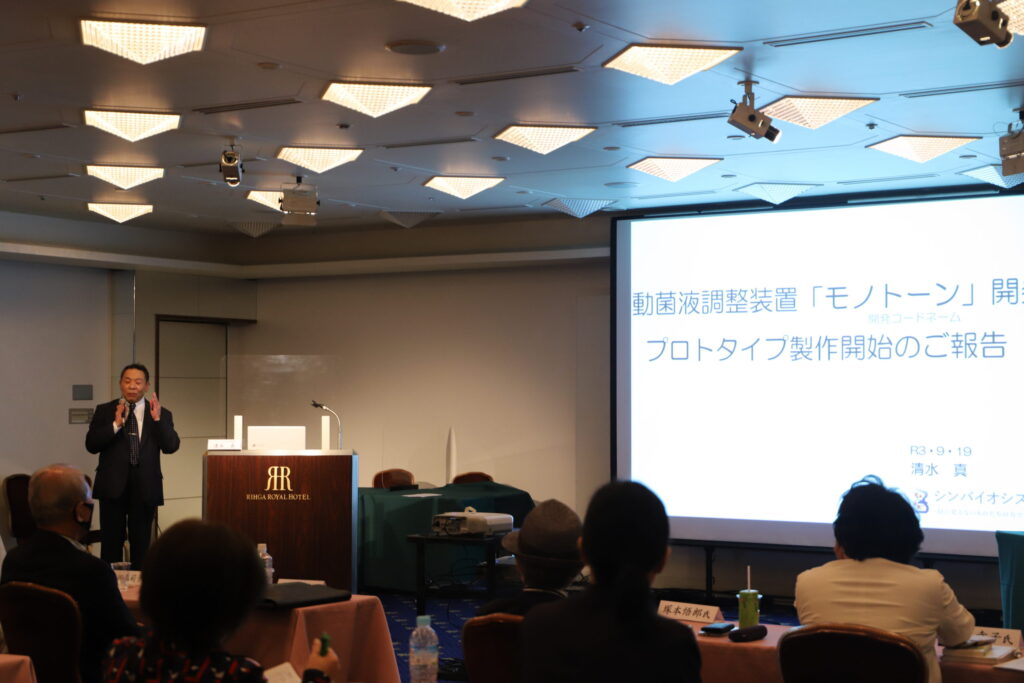
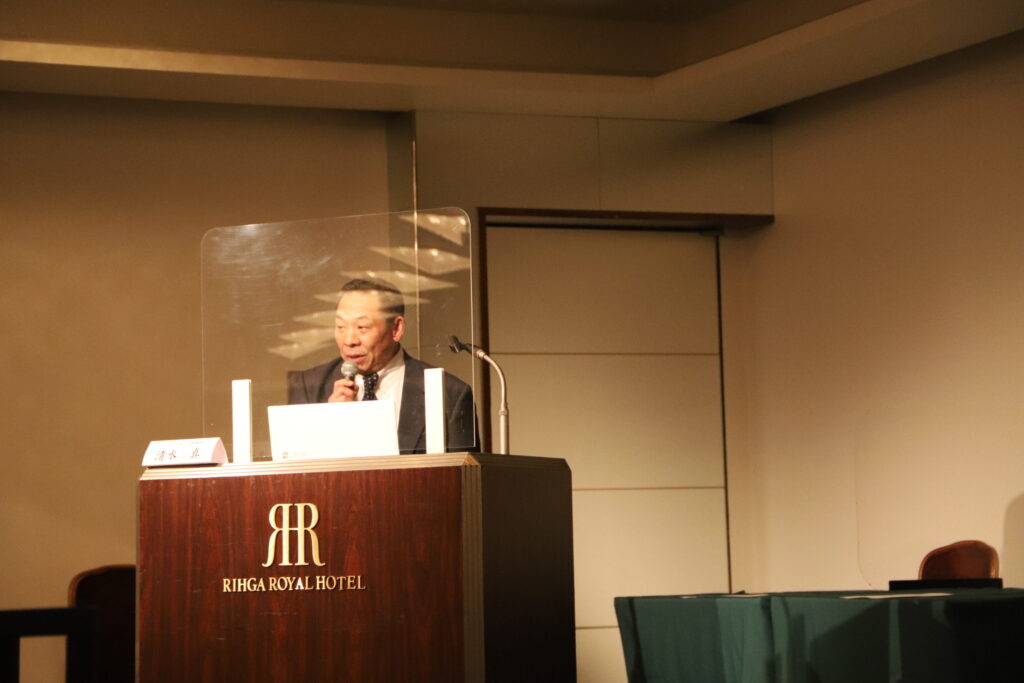
closing address
►Dr. Masahiko Shirotani, Executive Director (Director, Luke’s Ashiya Clinic)
Finally, Dr. Masahiko Shirotani closed the meeting by thanking the participants for their continued support and announcing next year’s 6th Annual Meeting.
The 6th Annual Scientific Meeting
We are pleased to announce that the 6th Annual Meeting will be held as follows. We are looking forward to seeing you at the 6th Annual Conference, where we will report the results of our daily research on intestinal flora transplantation, including basic research reports and case reports.
We will post details on the 6th Annual Meeting event page as soon as they are finalized.

[Date] September 18, 2022 (Sun.)
[Location] Rihga Royal Hotel Osaka
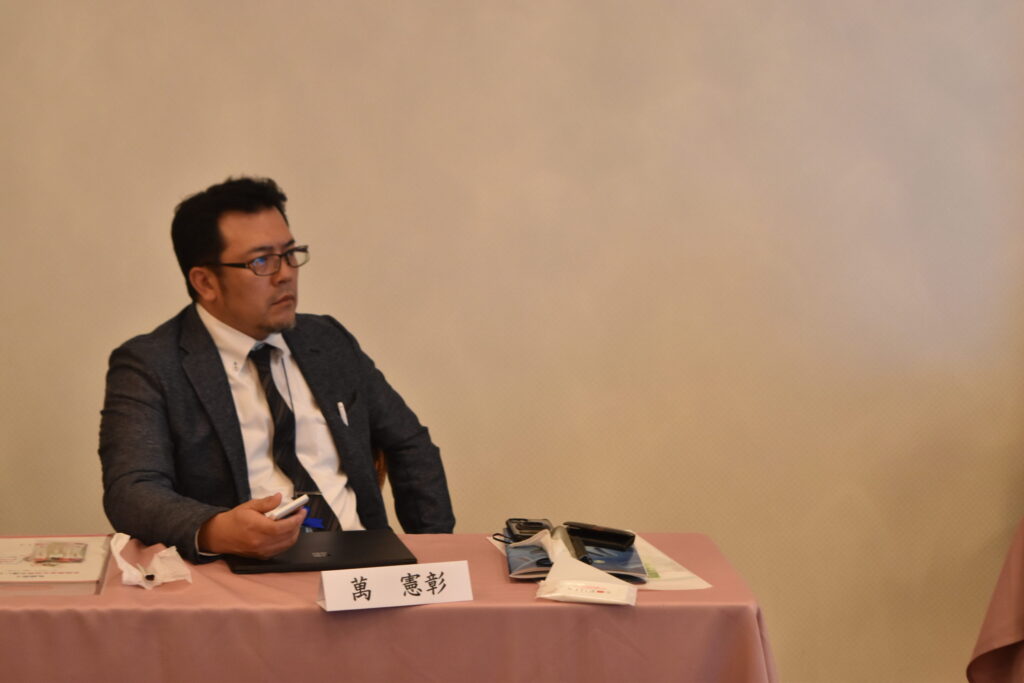
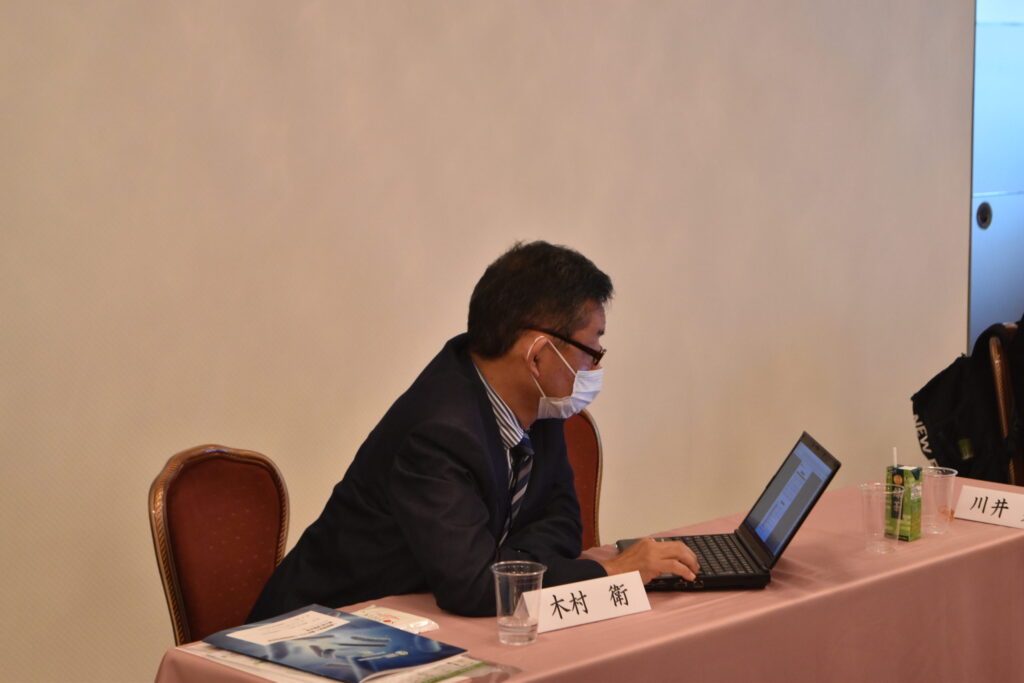
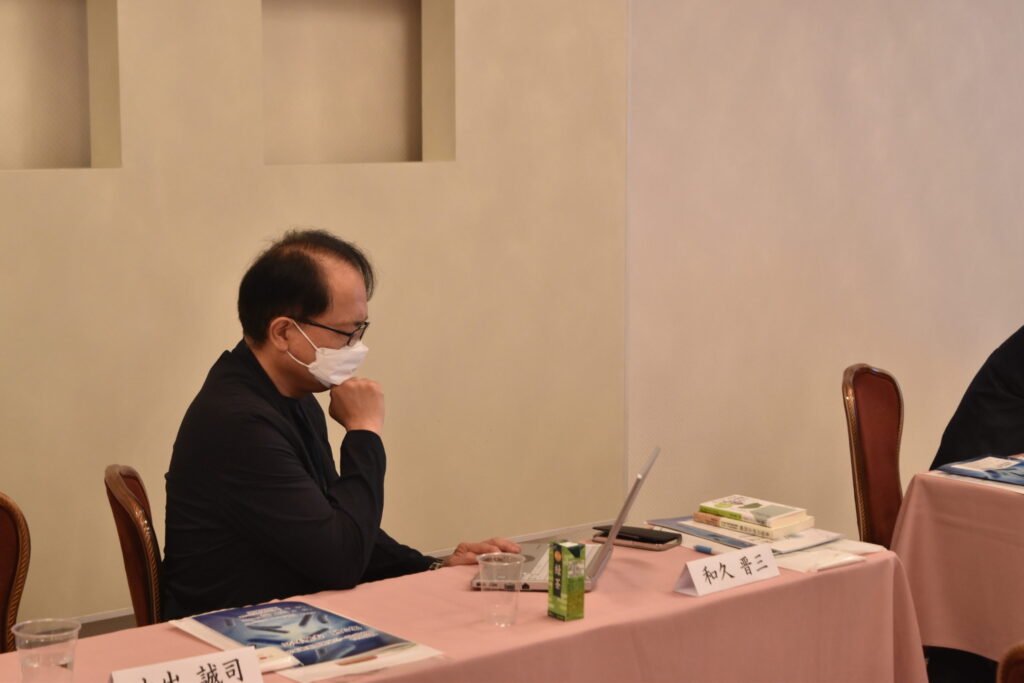
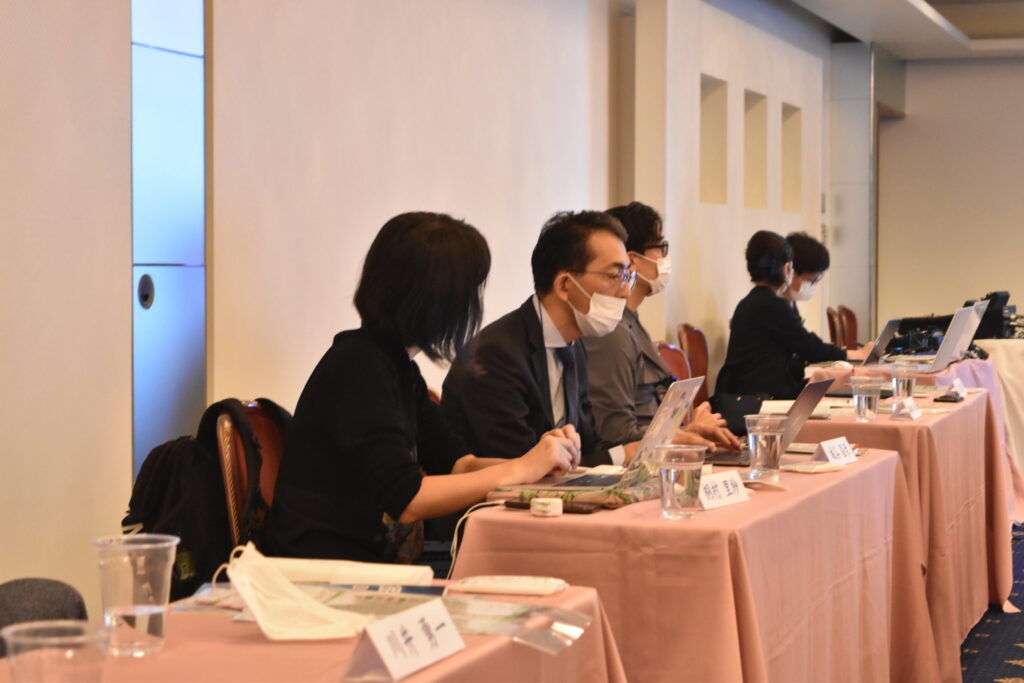
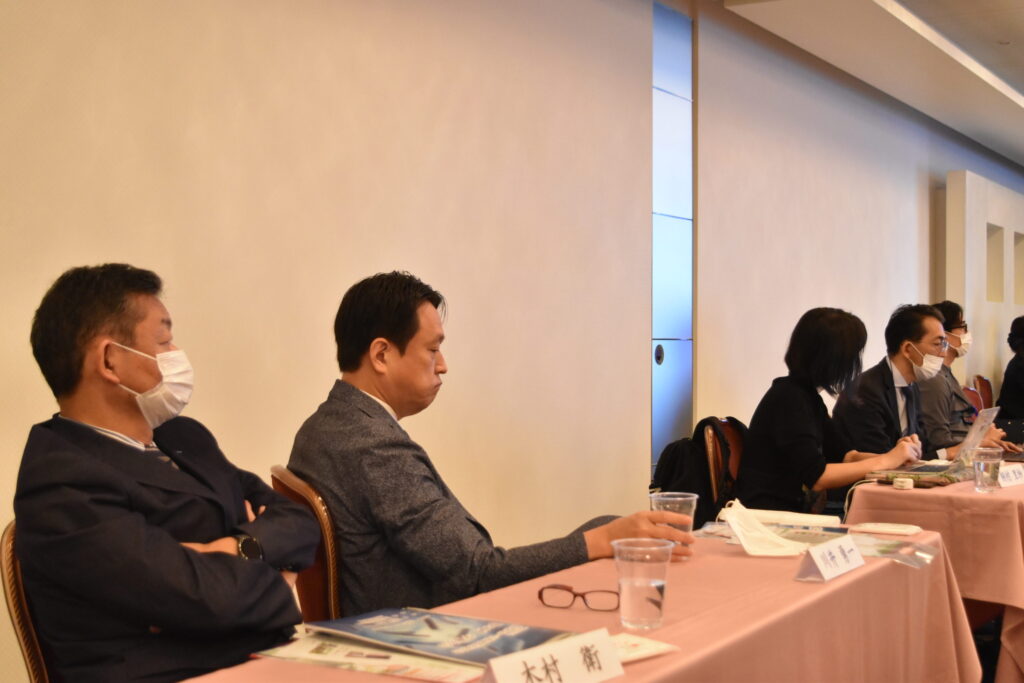
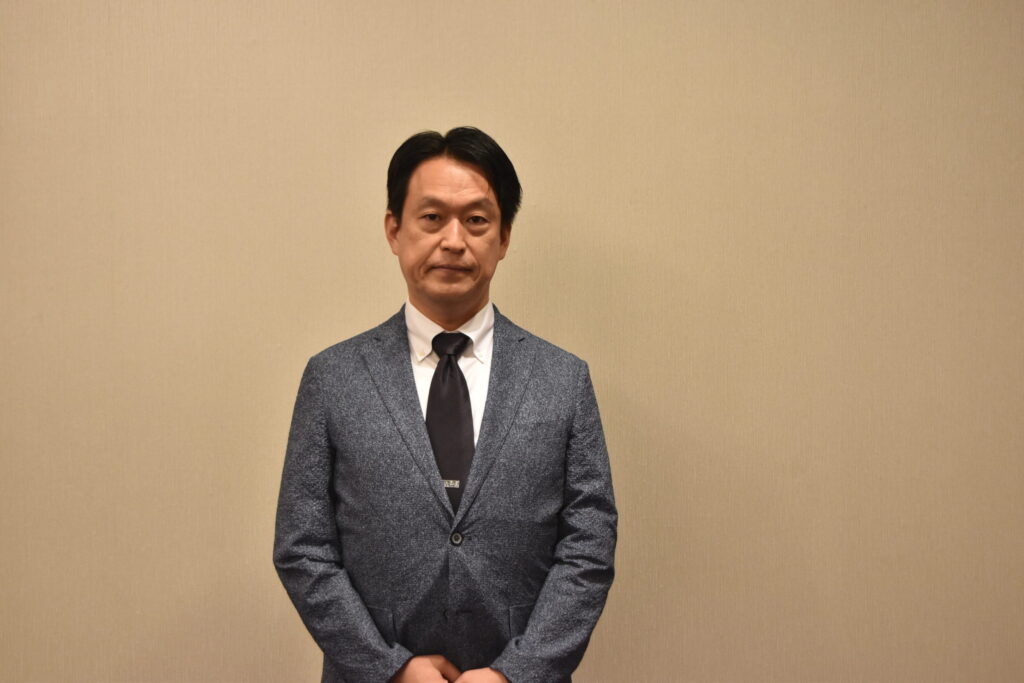

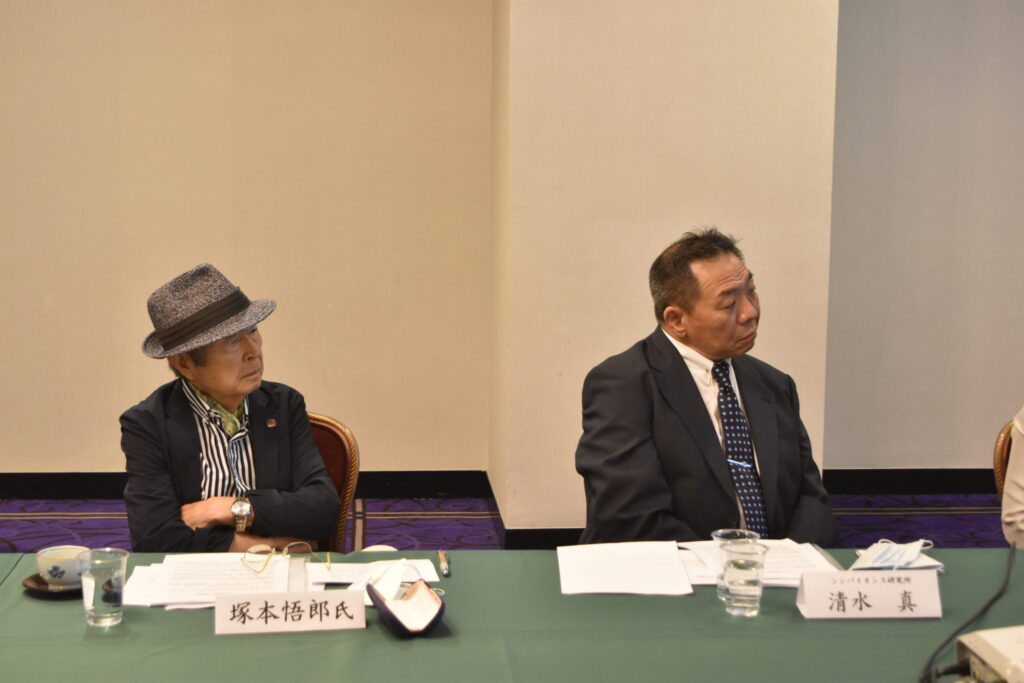
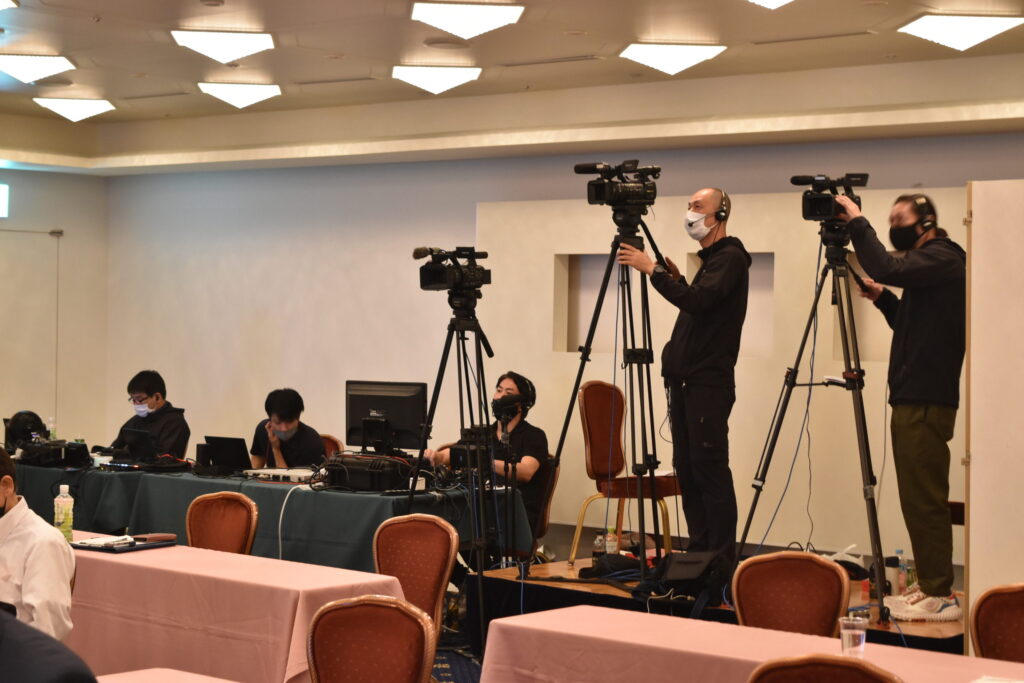
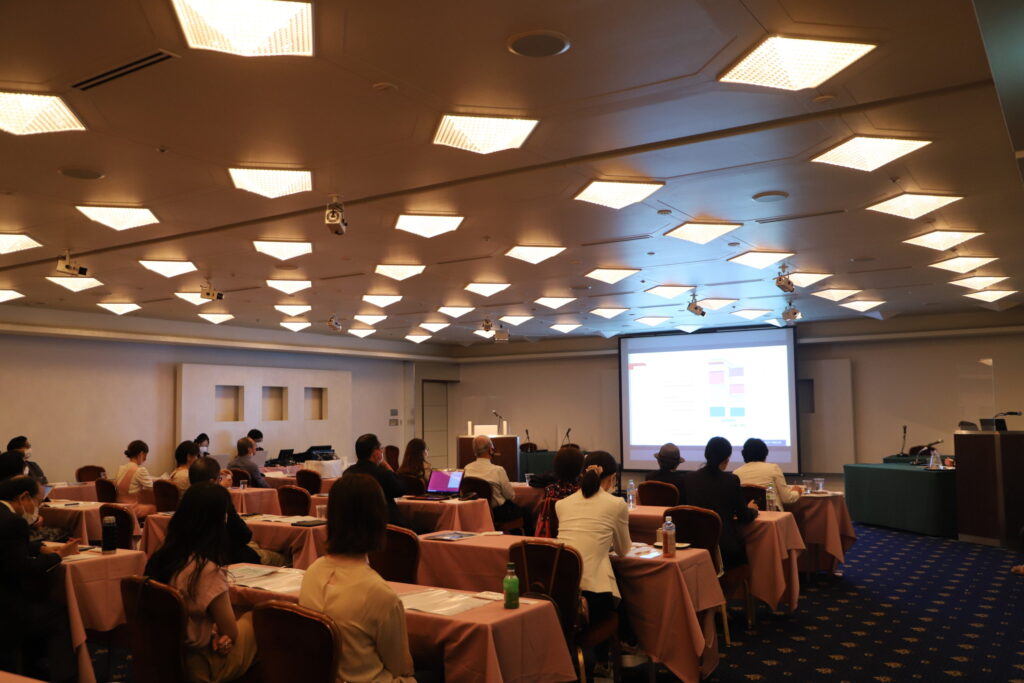
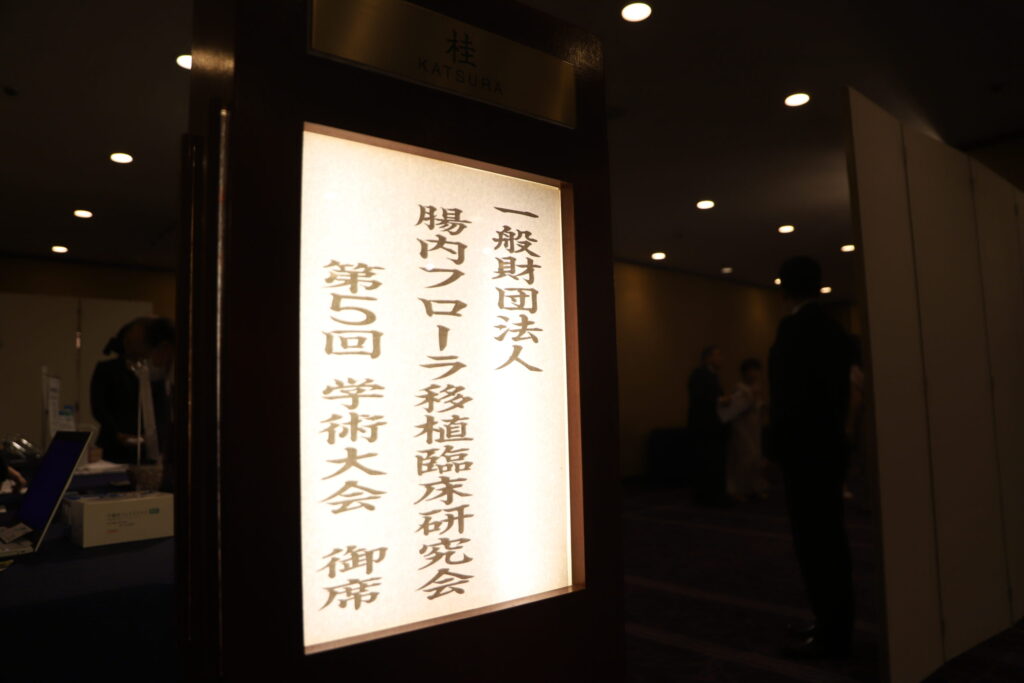
Finally.
We would like to thank all of you for your support and cooperation in opening our doors safely after such a coronary disaster. Thank you very much.
We are reminded once again that the potential of intestinal flora transplantation is now the focus of much attention, and we will continue our research every day to help everyone in any way we can in our future studies.
Thank you for your continued support.
その他の Academic Conference に関する記事
Articles about other Academic Conference
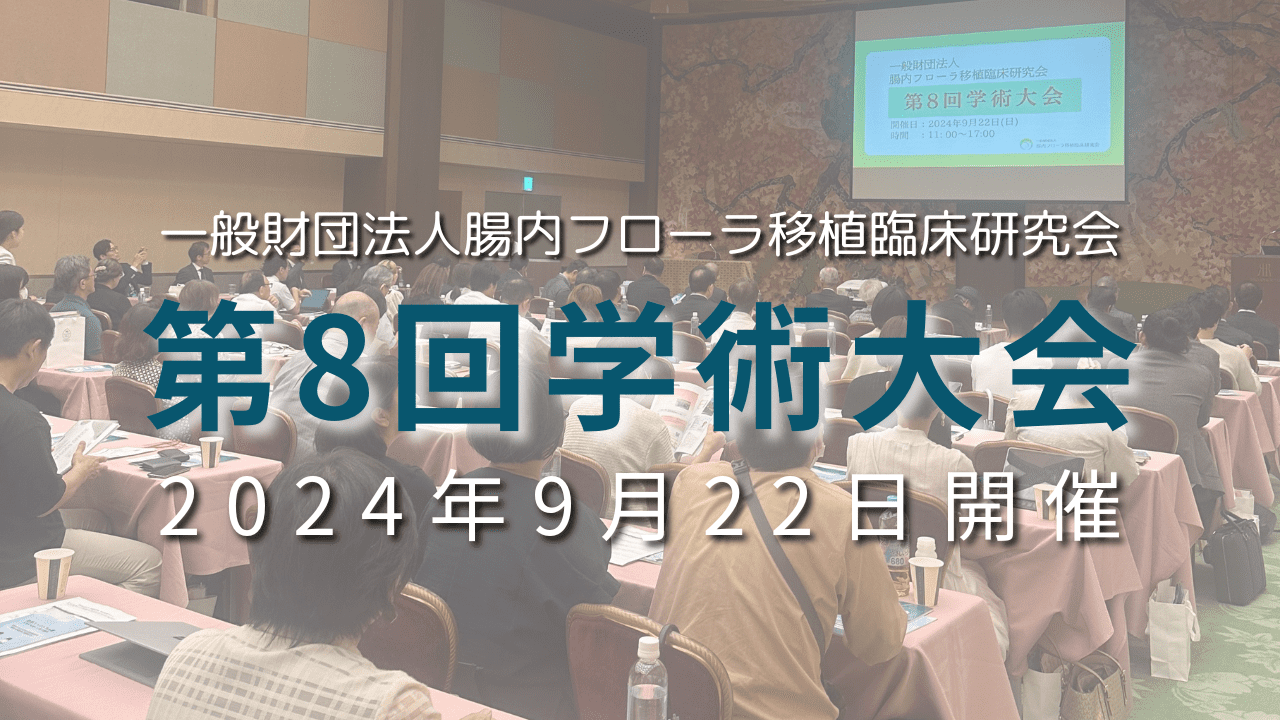
October 22, 2024
第7回学術大会【開催報告】
2024年9月22(日)に「第8回学術大会」を開催いたしました。会場とオンラインの同時開催で行い、医療関係者や一般企業の方、研究機関の方、患者様やご家族、そして一般の方など沢山の方々にご参加いただきました。皆様のお陰で無 […]
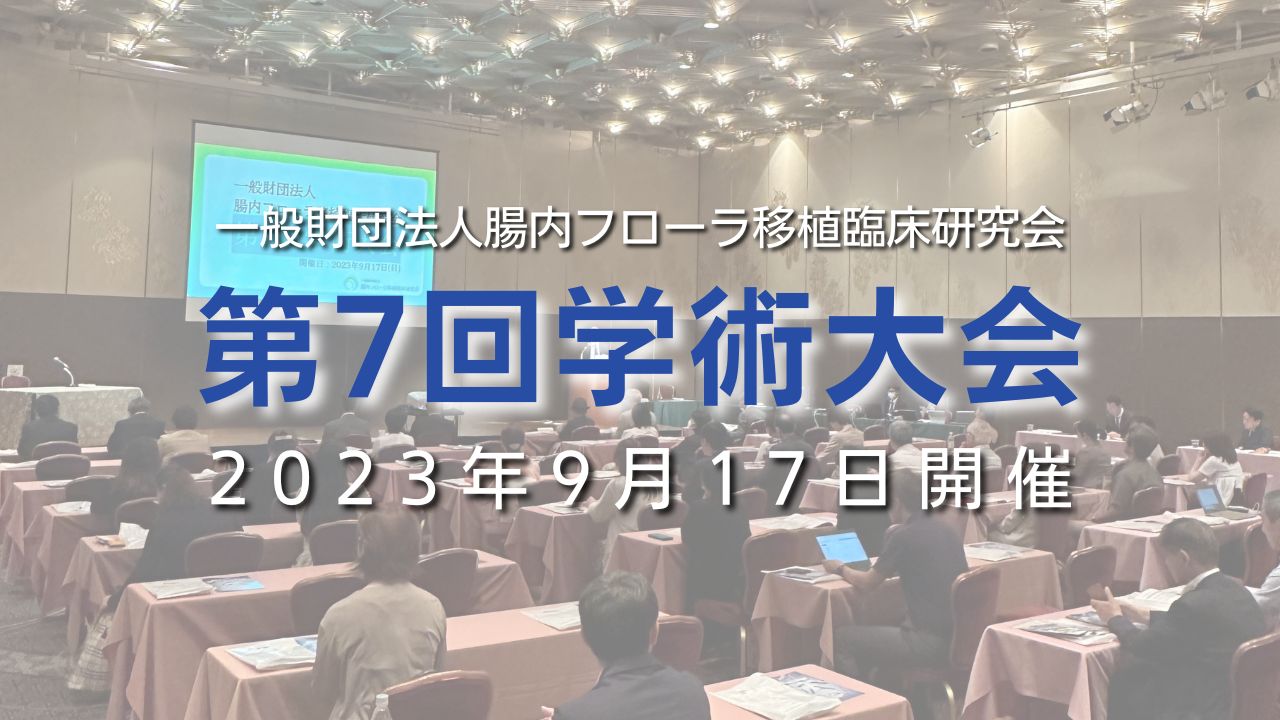
September 27, 2023
The 7th Annual Conference [Report].
The “7th Academic Conference” was held on Sunday, September 17, 2023. The event was held simultaneously at the venue and online, and was attended by a large number of people, including medical professionals, general companies, research institutions, patients, and the general public. I would like to take this opportunity to express my gratitude to all […]

October 05, 2022
The 6th Annual Conference [Report]
The 6th Annual Scientific Meeting, held on Sunday, September 18, 2022, was held simultaneously at the venue and online. It was attended by many people, including medical professionals, general business people, people from research institutions, patients, and the general public. Despite the corona pandemic, everyone […]




